#to imagine the kind of strange myths the people of your world might create
Explore tagged Tumblr posts
Text
"Its weird that GameFreak made these stories with adult themes when it's a children's game series."
Yeah its almost like there's a reason it wasn't released to the public by them.
#girlbob.txt#pokemon#teraleak#theyre just mythos. even if they don't include them its good worldbuilding practice#to imagine the kind of strange myths the people of your world might create#and to confront the typhlosion in the room its almost like that myth makes for an effective tool#in explaining the 'dont go into the tall grass without a pokemon' concept
162 notes
·
View notes
Text
He came from an realm fullfilled of misunderstandings hence he wouldn't risk create more. Though, there was an latent amusement about sudden discovery he found … randomly, nevertheless appreciated how, regardless his young age and his inability to maintain that much a long term lifespan compared to her, he remained somewhere the discreete supporter of her. Underworld had ways that were in their own way impregnable. In that sense, when she expressed apologies towards first approach, he smiled in return, in which there was reassurance no harm had been done during that first conversation. As an manner of communication and lowered down possible barriers ( since most of time, he was doing it with ghosts, and it would be better if the main concerned were comfortable for share knoweldge with him or bring their outsider opinions over an situation ), humour was his best weapon. Though, as much he wasn't sure how much he could say about himself, he had to admit last thing he expected was to learning how to kill vampires by one of them … when he was gratefully happy in same time she was comfortable enough to told him. This information was indeed inside good hands : meaning, he will keeping himself silent and protected it.
❝ Oh. Like the movies or some books talk about. ❞ He expressed with an kind of detachment as it was expressed as an example. He could picturing it perfectly, meanwhile his mind accepted mentally to imagine part of fiction was actually real, and part of reality had been transformed into fiction. ❝ Myths about you had been quite distorted within time. ❞ He commented then, without searching to be offensive, but just needed to point that out. At the notion of her having home within two countries, an empathizing smile betrayed what he didn't confessed right in the spot. The whole world was somewhere he could travelling --- along some surprises coming from his father interferences around --- but he desired some kind of stability. ❝ I'm a bit like you, having homes inside two realms, and going around elsewhere once in a while. ❞ He preferred expressing instead with a hint of playfulness. Only thing that his gaze sparked at the moment was curiousity. By the moment there was no terrible ambition to kill him or harm whatever other people inside some evil plan, no matter how someone could sound monstrouous because of their species as an misunderstanding, he was curious to know more. She wasn't like some ephemeral creations born out of necessity of an goal, that even destroyed would ressurecting out of nowhere. Regardless if she was an vampire, he perceived rather on her the humanity she was still holding, which dramatically allowing him to feeling alive in front of someone you strangely was and wasn't. If he could manage to feel alive in depths of paradoxes of existence, it might be difficult to feel comfortable every day of his life ! Anyway, Hades had a lot of little lines that were almost invisible to read, and to which casual knowledge could create embarrassment ! Appreciating the strenght of her snake in which he laughed a bit about, he smiled further towards how that discovery had going very well. ❝ In some manner. ❞ He playfully mused. It was just most visible iceberg part, where, since he had the Underworld all around him, everything that was linked to his dad, to feeling Thanatos or to having a great need for Hypnos, he knew it a little. From a visual point of view, perceiving someone's soul could be as easy as seeing ghosts, nevertheless he strove to be extremely polite than his dad. ❝ Well, when you have Death all around you in an common basic, I will be the last person imposing an judgement, as mystic as your remain, and as altered you had been as everything else belong to one kingdom especially. ❞ Another manner to bring foreshadowing about the Underworld without saying the word, a gymnastic that he didn't always achieve. An laugh followed when she admitted the last point. ❝ We share same goal. ❞
When the question came, there was yet an remnant of anxiety about how she will take the news. How she will perceiving him afterwards that slight detail expressed … ❝ I was born with them, but it just woke up a little later. Suddenly. Hit me without warning. ❞ Detail concerning grief of his sister will be pushed behind, for the moment when he collapsed --- magically awakening himself and decided to taking back something removed of him … Hesitation of his gaze remained for an couple of seconds, when there was no pleasant manner to introduce the news. Besides, he needed to watching over his surroundings for be certain he was safe. Taking a deep breath, he decided to keep his introduction simple. ❝ I'm an half-blood, human for the most part, but also Hades son. ❞ He expressed slowly. ❝ Since dad's kingdom extends to infinity, and my dad has a lot of influence everywhere, I have the nose of a Cerberus. Question of existence, it's a paradox and permanent dilemma to know where I am truly belong, and with dad's reputation, I don't really have a choice but to spare him other worries. ❞
"I guess so," Melike says with a chuckle. She does know what they say about assumptions making an ass out of you and me. The phrase is meant to warn people against assuming things too often, but of course, even after centuries, Melike isn't perfect. What can she say? Her times had been different, and though she's changed too as time has gone on, she has always had a passion for looking and living well. "Forgive me?" She asks with a pout.
When he says that she's lucky not to be burning in the sun, Melike giggles. Absolutely giggles. "That's actually a common misconception about us." She says with a shrug. "We only disintegrate or burn if we're staked." Of course, she probably shouldn't tell him how to kill her. But she hopes that he won't use that knowledge against her. After all, she means him no harm. She only kills the bad ones, and so far he seems perfectly fine.
"Oh, I have." She says when he mentions traveling a lot. "I have homes in two countries, and rent elsewhere." Right now she's in one of the places she rents. But she has homes in Istanbul and London. Still, she travels all over the world. And loves every second of it. Life is a constant adventure now, and she wouldn't have it any other way.
She shakes his hand eagerly, wondering how he had found her out. "A pleasure to meet you, Nico." She says with a friendly smile. When he mentions death being all around her, and that he has a nose for it, she nods. That explains it. "Ah, I see. That's a rather interesting ability you have there." Melike is rather impressed, to be honest. "Must come in handy for avoiding the worse elements of my species, and others who might mean you harm." She doesn't, though. Mean him harm, that is. "Don't worry, though, you're safe with me. I only kill the bad ones." And only bad men, but she figures that's not relevant, since he's only a boy and doesn't seem to her to be a bad person. So he is indeed safe from her eating him.
"So...what are you? How do you have these abilities?" She wonders, curious to hear more about his abilities and their origin. She does still sense the aura of power, but it's not telling her anything specific about what species he is. And she so dearly wants to know specifics. He must be a kind of being she's never met before, and that only makes her more curious.
9 notes
·
View notes
Text
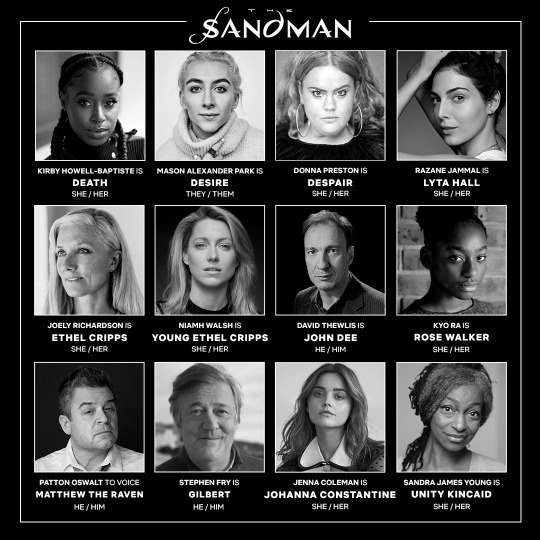
More casting news on Sandman...
Every afternoon I get an email telling me that there are “dailies” from The Sandman ready to be watched. It's the best bit of the day. Once every few weeks I get an email letting me know that there's a finished episode waiting for me to watch it. It's the best bit of the month.
The Sandman is being made, and it's... well, it's The Sandman. Which is the best thing of all.
You may know that The Sandman is based on my comic book series of the same name. A rich blend of modern myth and dark fantasy in which contemporary fiction, historical drama and legend are interwoven, The Sandman follows the people and places affected by Morpheus, the Dream King, as he mends the cosmic — and human — mistakes he's made during his vast existence.
You might already know that Tom Sturridge (he/him) is Dream of the Endless, Gwendolyn Christie (she/her) is Lucifer, Sanjeev Bhaskar (he/him) and Asim Chaudhry (he/him) are Cain and Abel, Charles Dance (he/him) is Roderick Burgess, Vivienne Acheampong (she/her) is Lucienne, and Boyd Holbrook (he/him) is The Corinthian.
But there are more parts to be announced. And I thought it would be fun to tell you about some of them, and the thinking behind them.
DEATH – Dream's wiser, nicer, and much more sensible sister. Significantly harder to cast than you might imagine (well, than I imagined, anyway). Hundreds of talented women from all around the planet auditioned, and they were brilliant, and none of them were right. Someone who could speak the truth to Dream, on the one hand, but also be the person you'd want to meet when your life was done on the other. And then we saw Kirby Howell-Baptiste's (she/her) audition and we knew we had our Death.
DESIRE – Dream's sibling and everything you want, whatever you want and whoever you are. Desire is also trouble for Dream. Families are complicated. We had barely started looking when Mason Alexander Park (they/them) reached out on Twitter, and threw their hat into the ring. We were thrilled when they got the part.
DESPAIR – Desire's twin, Dream's sister. She is the moment when all hope is gone, the bleakest of the Endless. Donna Preston (she/her) will be playing her, and her performance is chilling and sad. You feel her pain.
JOHANNA CONSTANTINE – Eighteenth Century occult adventuress, John Constantine’s great-great-great grandmother. This Sandman character became so popular that she even had her own spin-off series. I created her to fill the role that John Constantine does in the past. When we broke down the first season, given that we knew that we would be encountering Johanna in the past, we wondered what would happen if we met a version of her in the present as well. We tried it and the script was sparkier, feistier, and in some ways even more fun. So having written her, we just had to cast her. Jenna Coleman (she/her) gave us the Johanna of our dreams – tough, brilliant, tricky, haunted and probably doomed.
ETHEL CRIPPS – Roderick Burgess's love, John Dee's mother, is a small but vital role in the comics, but she became more important as we told our story. In the 1920s and 30s, she is played by Niamh Walsh (she/her): a betrayed and determined young woman seeking to survive. In the present day, now a woman of a hundred identities and a thousand lies, she's played by the brilliant Joely Richardson (she/her).
JOHN DEE – Ethel's son is dangerous. He was driven mad, long ago. Now he's out and on a quest for Truth that may destroy the world. We needed an actor who could break your heart and keep your sympathy while taking you into the darkest places. We were lucky that David Thewlis (he/him) took the part.
Now we're shooting The Doll's House, the second big Sandman storyline. It's the story of:
ROSE WALKER – a young woman on a desperate search for her missing brother, who finds a family she didn't know that she had, and a connection to Dream that neither of them can escape. We needed someone young who could make you care as she ventures into some very dangerous places. Boyd Holbrook's Corinthian is waiting for her, after all. Kyo Ra (she/her) achieves that as Rose.
LYTA HALL – Rose’s friend, a young widow mourning her husband Hector. Rose doesn't know that Hector has started showing up in Lyta's dreams, though. Or that strange things are happening. Razane Jammal (she/her) is Lyta, and she's terrific.
UNITY KINKAID - Heiress, Rose's mysterious benefactor. She has spent a century asleep. Now she's awake, having missed out on her life. She's played by Sandra James Young (she/her).
GILBERT – Rose Walker's debonair protector. A dab hand with a paradox and a sword cane. Stephen Fry (he/him) is a National Treasure, and we forget sometimes that he's also a remarkable actor. Seeing him in costume and make up on the dailies made me blink: it was as if the comic had come to life.
MATTHEW – Dream’s trusted emissary. A raven. I expected our animals to be CGI, and was both taken aback and thrilled when the dailies started coming in, and there was Dream talking to... well, a raven. But ravens don't really talk. The question was, could we find an actor who could make you care about a dead person who was now a bird in the Dreaming – one who isn't certain what's going on, or whether any of this is a good idea? And could we find a voice performer who was also the kind of Sandman fan who used to stand in line to get his Sandman comics signed? The answer was, we could if we asked Patton Oswalt (he/him). And Patton was the first person we asked, and the first person we cast, the day before we pitched The Sandman to Netflix.
Of course, there are more delights and nightmares cast than I've listed here, and we have a few more secrets up our sleeves. I can't wait until you can start watching.
5K notes
·
View notes
Text
What is a Fairy?
I suppose they probably need some explanation, especially nowadays. Fairies (Faeries, Fay, Fey, Fae, or even Fair Folk) could be considered a type of mythical being. Some have described them as spirits, others as ghosts of the deceased, some deified ancestors, prehistoric precursors to humans, personifications of nature, pagan deities, or even angels and demons in the way of Christian traditions. Often they encompass a metaphysical aspect, being depicted as spirits or beings who transcend the physical universe and world that we know. Or given features of the Supernatural, such as magic or extrasensory perception, which allow them to violate or go beyond the laws of nature. Even sometimes Preternatural, which something abnormal or strange and explainable but still within the boundaries of the natural laws of the universe (for example I could say someone is a preternaturally good cellist, and mean that they are impossibly good beyond expectations or even belief, but I’m not saying that they are actually magical...just that their apparent abilities and how they gained them are unknown and very strange to me.) But what is a fairy? Well you already know what some of them look like. Many people might immediately picture Tinkerbell from the animated Disney feature film, or even from the original Peter Pan novel by J. M. Barrie. And they would be correct, in part. Tinkerbell is a depiction of a Pixie, a specific type of fairy. But there are lots of fairy types, I don’t actually think there’s a complete list. (I should probably try to make one at some point, but no promises.) During some points in history the label of fairy was used to mean magical beings who had a mostly human shape. Gnomes, leprechauns, goblins, pixies, dwarfs, elfs, etc etc etc. And at other points it also included non humanoid magical creatures such as Unicorns, Dragons, Kelpie, Basilisk, and more (Sometimes these were referred to as Fairy Creatures). So where did they come from? Well the funny thing is that Fairies don’t actually come from only one area or set of myths. They are a strange combination of the folklore from all over Europe (and possibly beyond) and include ideas and stories from Celtic, Scandinavian, Nordic, Germanic, French, and English Folklore and Mythology. As these stories were passed around and intermingled and changed they brought about the collective creatures we know today as the Fae or Fairies. The Renaissance, Romantic Era, Victorian Era, Edwardian Era, and even the Celtic Revival Movement of the 19th and 20th centuries all had their influences on the stories and ideas connected with the Fairy folk, some significantly less helpful than others. Even the Fantasy Literature Genre, with Tolkien at its forefront, has added and changed much about people’s view on these creatures. So lets talk about some basic things you’ll want to know when dealing with Fairies. The first thing you might want to remember is that many people view the Tuatha Dé Danann (Supernatural gods, goddesses, heroes, and kings of Irish Mythology) as being the source for Faeries, or at least one of the strongest influences. Celtic Folklore and culture is easily one of the most visible bits of Faerie lore that you can find these days, but there’s a lot more that starts showing up when you begin to dig. Another thing to note is that the Renaissance, Romantic Era, Victorian Era, Edwardian Era, and the Celtic Revival Movement had a massive influence on how people saw fairies. They would mix folklore from different areas of Europe, attempted to prove the existence of fairies through scientific means, created artistic depictions of fairies, and much more. Often they sanitized and shrunk the fairies until they were mostly harmless or relegated to the outskirts of human life as a curiosity. Which brings me to the next point. In a lot of older folklore, from all over Europe, fairy beings are often depicted as being incredibly dangerous. Kidnapping humans or human babies, causing crops to wither, water to dry up, food to rot. They could lure people in with magic into a fairy ring of mushrooms and make them dance forever or make them forget their life. Sometimes they even played with time itself. A person could dance with the fairies only to find that they’ve been gone a hundred years when they try to go home. And many beliefs have depictions of some kind of Otherworld, a world apart from our own, or layered over it like an extra dimension we are unable to perceive or directly interact with. Sometimes its a land of the dead or a hidden underground kingdom, other times is a strange and fantastical country with its own laws and ways of doing things. As these stories meshed together we got what is known as Fairyland. The land which the fairies dwell in. Though some believe they simply live on Earth, hidden in the wild, or among us. Some reoccurring ideas are often connected with fairies, though not all have stayed the same as the original lore they were born from. The idea that Faeries, for whatever reason, are unable to or will not lie. This is a very important idea because the Folk are also simultaneously depicted as deceptive. Like particularly vicious lawyers they will play with words, never quite lying, but purposefully leading you astray or tricking you into a bad deal. They will often obey an oath, promise, or deal exactly to the letter, but ignore the intent behind it in order to twist it to their own benefit or amusement. Whether or not fairies are immortal depends entirely on where you draw your folklore from. Sometimes they are immortal; deathless, not mortal. Unable to die in spite of starvation, terrible wounds, age, or anything else. They are bound to life for all time. But some stories depict the stranger Fae Folk as being Eternal. Beyond time, always having existed and always existing, sometimes cycling, sometimes directionless and boundless and everything. Some tough concepts to get your head around, but nobody really agrees which one fairies are. In some folklore they’re even depicted as mortal, same as you and I, but a lot longer lived and harder to kill. A reoccurring motif in older Folklore is the need of humans to try and ward off fairies with charms and totems. When they were not depicted as outright malicious and dangerous, sometimes being thought to cause illness and death or bring about disastrous misfortune or steal a person’s name and voice, fairies were still mischievous and valiantly unhelpful. So people had all kinds of lucky charms to protect from them: like four leaf clovers, various plants, or actions like wearing your clothes inside out to confuse them. Iron is said in many beliefs to burn them, and certain herbs they view as sacred and will refrain from touching the bearer. A few more things. Christianity plays an important part in this discussion, though many people don’t like that. In many places myths and legends were wiped out by Christianity, either intentionally or simply by the very fact that it was trying to convert people in Europe and old pagan beliefs were seen as nonsensical. But still stories persisted despite this. Many old Myths and Folkloric beliefs were recorded for posterity by Christians, and some stories were altered and we are unable to see exactly how much (Beowulf). A lot of fairy stories remained too, only Christianity painted them as fallen angels or even demons of a kind, who could be kept away from Holy Ground, or were forced to kidnap humans to pay a tithe to Hell (or be taken themselves if they couldn’t pay). So folk beliefs, though generally discouraged by the church as superstition, remained quite strong all over Europe for a very long time. The last three things you need to know. One, there are many people who still believe in Fairies, though their beliefs often vary, sometimes wildly. Witches who claim to work with them. People who believe in them through their religions (usually pagans and other non christian groups). People who claim to have encountered or been abducted by them. And many others. While I personally do not believe in Fairies (though I like to keep an open mind, just in case), I do believe that the beliefs, cultures, and and rights of these people ought to be respected. Which leads me to other mythical beings that are similar to Fairies but hail from cultures and peoples outside of Europe. It might be tempting to label some of the spirits from various Native North American Tribes or from Chinese Folklore (or many others) as fairies. Don’t do that. If Fairies are real, you have to consider that there might be other mythical beings who fall under different categories and groups. And even if they are not real, it is extremely disrespectful to the people of those cultures to take their stories, myths, beliefs, and folklore and try to mesh it in with European Folklore. (this is exactly what the Victorian and Edwardian Era were guilty of.) And finally... Some people might tell you that they know everything there is to know about Fairies. Don’t believe them. Even I, who have spent years and years studying European Faerie Folklore, find new things about them every day. I have sources I’ve found and haven’t yet had the time to look into, areas of study I’ve had to neglect. There is so much about Fairies to explore that it’s quite literally impossible for any one person to know all of it. Personally I’m doubtful that a single person can even know an eighth of it all, you can hardly imagine how much there is. And while there is a great deal of it buried on the internet, there is even more offline. Books which are out of print or have never had their contents uploaded, cultural stories passed down in various European groups which are saved from oblivion only by the oratory tradition, and the remains of all kinds of long dead or vastly changed civilizations who believed in the Fairies and tried to work with or avoid or appease them. All the misinformation and personal gnoses out there also make it a lot harder to find accurate information about traditional folklore. And that’s not even counting the multitude of inventions and ideas spawned by fictional literature surrounding fairies. There is simply too much. But of course... Since when has something being impossible ever stopped a human from trying anyway? If you’re still interested, then who am I to discourage you? Go, jump right in. There’s so much to learn about the Faerie Folk.
#what is a faerie#faerie#fairy#fae#folklore#mythology#european folklore#brief explanation#(hah. I've never been brief in my life. I'm not going to start now)
131 notes
·
View notes
Text
The illustrious then-@keerka, who now goes by @troquantary, sent me the following ask. Tumblr, of course, ate it, but luckily for us all I store all my asks on an outside server, so it wasn’t lost.
(A moment of silence for the fact that I took so long to answer this one that the ask was eaten and the asker got a new blog in the meantime.)
This was the ask:
Hi! When you have time, I'd love to hear more about your thoughts on the worldbuilding in Twilight and its logical consistency (if that's not too vague a question to even pose). For me it's almost hard to assess because the canon universe feels very...sparse? Kind of undeveloped? But that also means more room to develop headcanons, so I'm not complaining. Curious to know what you think, though!
This is my answer:
I think I’ll divide my answer in two sections, first I’ll give you an example of a franchise that has poor worldbuilding, then get into my thoughts on Meyer’s worldbuilding.
Supernatural.
Low-hanging fruit, but all the better an example for it.
Supernatural introduces us to a world where everything is real. Everything that goes bump in the night, every myth and every monster, it’s all real, and 99% of them are out to hurt people. Who will stand against this evil, you may ask? Why, a scruffy but all-American bunch of self-declared hunters. These people are not organized, in fact most of them work alone. They are all outlaws. Their expertise is questionable, as Bobby Singer is considered remarkable for the fact that he usually knows what something is.
That’s it.
These people, all of them independent, most of them weird as fuck, are it. You’re in 21st century America, your country wields the most formidable military force in the world, and if something supernatural is wreaking havoc in your town you’d best hope one of these hunter nutjobs happens to have spotted the right newspaper clipping.
We’re offered no explanation as to why the American government doesn’t know about the supernatural, or why the world doesn’t look completely different. In our world, people don’t believe in ghosts because ghosts aren’t real, but in the world of Supernatural, people don’t believe in ghosts because [footage not found].
There’s no demon nor government conspiracy to keep the world at large ignorant, in fact this subject is never broached.
Hunters would make sense if they were bountyhunters, but they’re not. The secrecy could make sense if the angels were behind it, but they’re not.
“Maybe the military does know!” you might say, “it’s just that they don’t let the hunters know they know!” Well, we would have found out in season 5. Dean and Sam were caught up in the apocalypse, the government would definitely have gotten involved with that one.
Then we have the fact that the supernatural entities aren’t internally consistent either. We have angels, demons, humans - good, got it. I know what these three are in relation to each other. But, wait, we have wendigos, banshees, ghosts, witches, vampires, and tricksters as well. How do they all fit into the same world? How does the Christian God and every pagan pantheon, both of which are canon per Supernatural, fit into the same world? Who knows? Not Supernatural.
Supernatural is a world that is written on an episode-to-episode basis, by writers who wanted that gritty bounty-hunter aesthetic for their show about supernatural marks.
Back to Twilight.
Twilight, by comparison, makes a great deal of sense to me.
I’ll admit that some of this is me reading into the text a lot, but I do that with every fandom I’m in. Twilight is a rare one where I can find an answer to every question.
We have these insanely powerful vampires whose exploits leave no survivors and whose numbers are kept low because it’s so hard to create a new one. They’re kept in line by a powerful organization no one can fight, and new laws are created as Aro discovers new threats (Immortal children, his debate on what to do with Renesmée). There are at least two other supernatural species out there, but of the two mentioned one is in place to protect humans, and the other was run extinct by the very organization that keeps vampires in line as well. None of this is fantheory, this is canon as Meyer created it.
Of course, I’ve gone some strange places in guessing why the Volturi exist, why the world of Twilight looks the same as ours, and why the supernatural world appears so limited. However, all of these things are extrapolated from canon. And I can extrapolate very easily because Twilight canon is consistent.
And this here segues into section two of my reply to you, as I imagine you (and many others reading this) are now saying “It’s not solid worldbuilding if the fans are doing all the work!”
Well, again - the difference between her and a lot of other authors is that when I overthink her work I find satisfying answers. That’s not a given, for instance I can’t do that with GRRM’s A Song and Ice and Fire, and half the point of that series is the worldbuilding! (My complains are many, I had to cut them from this meta, but the big one: why don’t the peasants revolt?)
I can’t think of a single plot hole in Twilight, nor of a logical inconsistency. Something either makes sense right off the bat, or I can look a little closer and easily piece together a logical explanation.
More, there’s no excess. I suppose this is what others don’t like about Meyer’s worldbuilding, but I enjoy it. Characters don’t prattle fun facts about things that ultimately don’t matter to the story, and if they do then it turns out later that yes, it did matter. Quite notably, when Carlisle gives Bella a crash course on vampire history, Meyer skips all of it except the part about immortal children, because that’s what was important. Later in that same book we meet Amun and the Romanians, and learn what the world used to be like, so it’s not like Meyer hadn’t come up with it. She left it out because it would have been off-topic and meandering.
This is where Meyer’s approach to worldbuilding comes in. It seems to me that she created the people and the story first, and then let the world they lived in fall into place around them, rather than the other way around. Now, there’s no right way to worldbuild, but I personally prefer authors who do it this way. To my tastes it generally leads to better stories, as this kind of author will show you the world through the story. We discover it as we go along and it becomes relevant to our characters, and if we don’t learn everything about it then that’s fine, though we’ve been given enough clues to guess. Consistency is key in this.
By contrast, authors who do it the other way around and build the world in full detail first, usually end up with worse stories. They get lost in their worldbuilding more often than not, their worlds end up so complex they’re inconsistent, and the story gets off-topic. Too much worldbuilding distracts from the story while adding nothing.
(There are of course exceptions to both, and I have more thoughts on this, but overall this has been my experience with fiction. Too much worldbuilding is in fact too much.)
The world should always serve the story, not the other way around.
(Again gonna use GRRM as an example. I don’t give a fuck about Aragorn’s tax policy. It’s not important to the story.)
So, these are my rambly thoughts on how I think.
There’s also the fact that, judging by Twilight and The Host, Meyer is just plain good at worldbuilding. She gets very good ideas, and she’s intelligent enough to successfully implement them into a story (look to Supernatural for an un-intelligent way of impleneting good ideas). And that’s all I ask.
#long post#it's getting long and late so we're hitting post#twilight worldbuilding#troquantary#twilight#twilight meta#twilight renaissance#a song of ice and fire#supernatural
118 notes
·
View notes
Text
On the Baratie, Part 4 - a One Piece Mermaid AU Text Story
Fourth part of the Baratie story!
This concludes the part on the Baratie, but there’ll be a 5th and final Epilogue part after this!
Warnings for: minor Sanji x Luffy, Thatch x Luffy, hint of bg Ace x Luffy
Continues off of past parts!
👒🐟On the Baratie, Part 1
👒🐟On the Baratie, Prologue
👒🐟On the Baratie, Part 2
👒🐟On the Baratie, Part 3
~~
In the calm after the battle, after Luffy's been bandaged up by Deuce, Sanji tells Luffy about his dream, about All Blue, and she listens with eyes that sparkle brighter than even the gleaming jewels in her tail.
"You'll find it," she says. "Come with us."
She's amazing, Sanji thinks. Luffy is far more amazing than he could have ever imagined when he first saw her. Because she isn't just the most beautiful woman he's ever met, nor is she just the embodiment of every sailor's most fervent fantasies come to life. She's strength, she's determination, she's conviction.
She's going to become the Pirate King.
And Sanji thinks maybe, maybe he could follow someone like that.
"Not bad," a voice says from behind them, and Sanji spins, because he hadn't sensed the man joining what he thought had been a private conversation with Luffy.
Sanji flushes, because he knows Ace doesn't have a good impression of him. Sanji grits his teeth and braces himself for the mocking to come, because it always does when he says he wants to find the sea that's more myth than destination for most. Even if Luffy didn't, that doesn't mean her co-captain won't.
Except he doesn't, and Ace slowly smiles, and he looks...strangely gentle. "You'll do," he says, before turning around and disappearing back inside.
He hadn't even bothered to warn Sanji about his proximity to Luffy.
~~
The next person Sanji talks to is Thatch, who's helping clean up the kitchen after the fight outside had shaken everything out of place. Sanji finds the man with a mop, complementing some blushing cooks on the care they've put into maintaining their work stations.
"Hey, you...Thatch, was it?"
Sanji still doesn't know how to act around the man. He doesn't feel intimidating, not like Ace does, and it's hard to believe that this seemingly ordinary stranger created the insane food Sanji had tasted before Krieg had come.
"Oh, Zeff's kid, what's up?" Thatch passes the mop off to another cook, and leans against a counter, looking perfectly at home despite this being the Baratie's kitchen.
Sanji doesn't bother correcting him. It feels nice, being called Zeff's kid, he thinks. Much nicer than being called that man's child. He likes it.
"Your cooking...it was incredible," Sanji manages. Awkward, he thinks, awkward, and utterly insufficient in describing it.
"Aww, glad you liked it," Thatch says with a bashful little grin, as though he hadn't effortlessly created the best food Sanji's ever had in his life. And maybe to him, it really was nothing. Sanji feels more respect than bitterness.
"You like Luffy," are the next words out of Sanji's mouth, and he winces because he hadn't meant to say that, but it's a love letter, had crossed his mind again.
Thatch's eyebrows go up. "Well, yeah? How could anyone not love Seastar? Or do you mean..." Thatch laughs then, but it's not at all mocking, just incredulous. "Wait, is that what you got out of my cooking?"
"Am I wrong?" Sanji shouldn't feel so defensive, but he does. This man loves the girl who's stolen Sanji's heart, and at the moment, Sanji knows he's not even competition. The least Thatch can do is admit it.
"Mmm...I suppose you aren't," Thatch concedes, "but if that's all you got from it, you can dig a lil deeper."
Sanji frowns. He doesn't think he read wrong, and he had sensed love love Love. But he also doesn't think Thatch would lie.
"Could I learn how?" Sanji doesn't just mean tasting, and he knows Thatch knows, and also hears the unsaid from you.
Thatch smiles.
~~
Zeff and the other Baratie cooks had apparently been preparing a scene for Sanji, in which they insult his cooking to make him feel like he needs to leave if he continues to refuse to join the pirates.
Luckily there's no need for it.
"You may already have a cook, but there's no demerit to having multiple, especially out at sea," Sanji begins, and Luffy's eyes light up, but for once Sanji's trying to focus more on her co-captain. "I'd like to join your crew."
"Yes!!!...right, Ace?" Luffy peers eagerly into the face of the man whose shoulders she's currently back to hanging from.
"Hmm, I dunno..." Ace pretends to think, and Luffy viciously chomps his ear. "OW, just kidding. Welcome to the ASL Pirates."
~~
Sanji's packing, trying to only gather the essentials but occasionally pausing to soak in the nostalgia of the room that had been his home for so long, when his hands still.
He's spotted a bundle of old, worn magazines wedged between much thicker books. They were among the first of their kind that Sanji had ever gotten his hands on. Sanji read cookbooks Before, but seeing cooking magazines, with stories about the people and culture behind the cooking, had been new to him when he first encountered them after joining Zeff.
It was a piece of the world from Outside (outside the confines of a hostile, military mobile fortress), and Sanji had been fascinated. He certainly hadn't cared that the magazines were published decades before Sanji had obtained them, second hand at a used bookstore they'd passed by on a little island before the Baratie had been completed. And Zeff indulged him, collecting more, claiming that it was to build up his future restaurant's cookbook library, though they were all hoarded in Sanji's room.
None of the other magazines captured Sanji's interest like those first ones though. Because in them was a column tracking the story of a boy, who at the time the magazines had been published, had been around Sanji's age. A boy prodigy who had won multiple international cooking competitions, even had his own restaurant and soup kitchen, but who left it all behind to travel the world to further polish his craft.
To Sanji, who had only ever encountered adults interested in cooking, the column on the boy was more fascinating and inspiring than any fictional story could ever hope to be. And even though he had no objection to helping Zeff with his dream of completing and running the Baratie, at night, Sanji would escape into the articles, imagining himself traveling alongside the boy to different countries, exploring and studying different environments and ingredients and the culinary cultures that had evolved in them.
While the columns were written by some professional journalist, there was always a clip included of the boy's personal notes. Scrawled and messy, they showed the child behind them, and Sanji always imagined them as something like personal letters addressed to himself.
Sanji's brush with death and starvation is forever engrained in his mind, but he has little experience exploring other less developed islands, certainly none by himself. He knows little about the hardships of travel, nor the joy of adventure. Reading the columns, he experiences them through the boy, learning through his words without ever leaving his own bedroom.
Don't waste anything edible, ever, or you'll regret it once you're stuck on a tiny boat, the boy wrote. In another article, you might think it tastes bad, but know who its friends are and it'll usually work out. In yet another, sometimes you don't have the right money, or any money at all, but you still gotta eat.
The boy's words influenced many of Sanji's beliefs, that he otherwise likely wouldn't have held so firmly, having never personally experienced their applications himself.
But magazines, especially out of print ones, are hard to obtain out at sea, even more so when they don't even originate from East Blue. Despite years of hunting, Sanji never managed to collect all of the boy's stories, and eventually, he realized that they were no longer being published. He never found out if the column was cut, or if it had a conclusion in an issue he was missing, or if something happened to the boy.
It's been years since Sanji's last flipped through them, but on a whim, he takes one, feeling oddly sentimental and wanting to say goodbye to this important part of his childhood memories at the Baratie.
And as he opens the weathered pages to the article, and looks at the photo of the familiar smiling boy, he sees something that he'd apparently forgotten, and it makes the cigarette fall from his lips.
The boy's name.
Thatch.
~~
~~
Again, one more Epilogue part after this, though they’ll have moved on from the Baratie! Next part contains my personal headcanons for Thatch’s past <3
As always, thank you so much for reading! If you had any thoughts while reading, I’d love so much to hear them! ;A;
❀ ❀ Send YukiPri an Ask! ❀ ❀
Read the next part: 👒🐟On the Baratie, Part 5 Epilogue
~This ask has been added to the Mermaid AU Text Headcanons Compilation post~
#OnePieceMermaidAU#One Piece Mermaid AU#Thatch#Vinsmoke Sanji#One Piece#genderbend#Monkey D. Luffy#text headcanons#longpost#long post
75 notes
·
View notes
Text
The Silver Screen Savant, pt 2- the Meh, the Bad and The yikes.
Hello Writers!
Last time here on Starry Starry Write, I talked a little about Autism in the media and my personal experiences therein. Today, I’d like to go a little broader, and tackle the topic from a macro perspective.
In recent times, you’ve probably heard “Representation Matters” oft repeated. Especially in prominent talking spaces like social media. But what does that mean, exactly?
Why “Representation Matters,” and how.
The short answer:

Diverse representation in media tells us that everyone has a place in the world. That everyone’s story matters.
The long answer:
It’s no secret that we begin engaging with media at a young age. When I was growing up in the 90’s and 00’s, TV and video games were often the babysitters of my peers. I was one of the few kids in my neighborhood whose parents weren’t divorced. The kids I knew? Not so much. Most of them were raised by single parents, grandparents and of course-the boob tube. I personally prefered books, when my mom wasn’t yelling “it’s too nice out to be holed up in that dark bedroom!”
Now, don’t mistake my preference for some kind of intellectual superiority. I watched plenty of TV too. Besides, books aren’t magically out of the equation. Printed material is our oldest form of media. And- often just as problematic. Though I will say- I saw a much broader range of people on covers adoring library shelves than I ever did titles on a TV roster. But, I digress. The point is: for many of us, consuming media begins at an early time of our life. And that’s where the problem starts. Even in my childhood, where The Magic School Bus, Hey Arnold, and Sesame Street showed people of all kinds, I can point to many that did not. Especially not people like me. Which did me a grave disservice. I didn’t know I was on the spectrum for a long time, and when I finally found out, I was horrified, thanks to what I had seen on TV.
Because media is not only a wonderful way to learn about people that don’t look, act or sound like us. It also informs our ideas of who we are, and what we can be. Whether we like it or not: it shapes how we understand the world. And it doesn’t stop with Childhood.
Time Changes Much, but not all.

Things are better now. Well, a little bit, anyway.
As an adult, I see more people like me on the screen nowadays. Which is nice.
Ish.
Why “ish?” Well…
Frequently, these “noticeably different” characters (read: Autistically coded) are branded “NOT AUTISTIC!” You heard it here first, folks! That one character (insert your favorite) is Totally Not Autistic. Despite being written in a way that gives every indication otherwise.
*Facepalm*
Now for some examples, which we’ll call the “Meh,” “The Bad” and the “Yikes.” For “fun,” we’ll also go into the off-air perceptions of the characters.
The “Meh.”
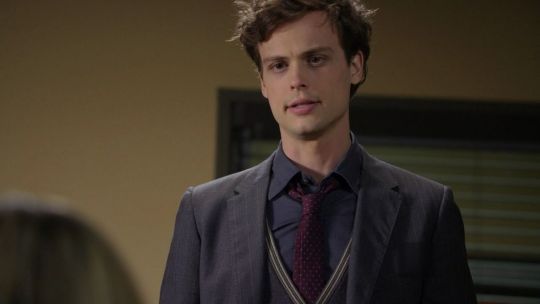
First on the list is Dr. Spencer Reid, from CBS’s “Criminal Minds.”
Dr. Reid is the youngest member of the FBI’s Behavioral Analysis Unit, having joined at the age of 22. He holds three B.A degrees in Sociology, Psychology and Philosophy, as well as three Ph.D’s in Engineering, Chemistry, and Mathematics.
He also has the social skills of a limp dishrag. Wait, what’s that? High Intelligence + Low Social Awareness? Hmmm…Then there’s his restrictive behavioral patterns, obsessive interests, and general “quirkiness!” that we could talk about. But let’s hear a quote from the actor who plays him, Matthew Gray Gubler:
“..an eccentric genius, with hints of schizophrenia and minor autism, Asperger’s Syndrome. Reid is 24, 25 years old with three PH.D.s and one can’t usually achieve that without some form of autism.”
Hoooo-boy. I could go into all the things wrong with this, including why the term “Asperger’s” is both horrific (TW: Eugenics,Ableism, N*zis) and harmful. However, today we’ll simply leave it with the fact that this term is no longer applicable, having been reclassified in 2013 as part of Autism Spectrum disorder.
The “Bad.”

Next up, we have Will Graham, from NBC’s Hannibal.
Like our first example, Will works for the FBI. He’s a gifted criminal profiler with “special” abilities, namely hyper empathy, which allows him to reconstruct the actions and fantasies of the killers he hunts. He’s intellectually gifted, hates eye contact, socializing, and prefers to spend…most of his time…alone.
Oh dear. Haven’t we been here before? But, I mean, he doesn’t have Autism! The show runner says so!
For Will Graham, there’s a line in the pilot about him being on the spectrum of autism or Asperger’s, and he’s neither of those things. He actually has an empathy disorder where he feels way too much and that’s relatable in some way. There’s something about people who connect more to animals than they do to other people because it’s too intense for whatever reason.
You can’t see me right now, but I’m cringing. A lot. This is just…ugh. I mean, for starters, I know a handful of autistic people who struggle with hyper empathy, which can make social situations overwhelming and hard to navigate. In fact, I happen to be one of them. Plus, there’s a cool little thing about how, frequently, people on the spectrum more readily identify with animals. But, y’know. Who am I to say? I’m just someone, one of many, who’s dealt with this my whole life.
Now, onto the “Yikes.”
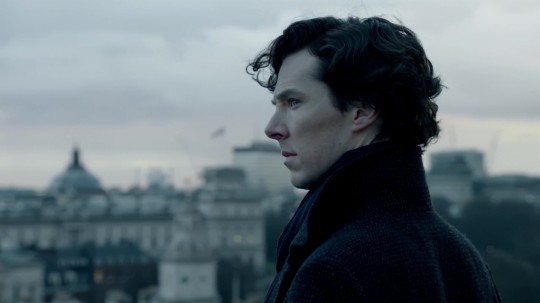
*sigh*
And finally, we have BBC’s Sherlock, a modern adaptation of Sir Arthur Conan Doyle’s renowned “consulting” detective, and probably the most famous fictional character of all time.
Now, I’ll start by saying that the BBC incarnation is not the first to be Spectrum labeled. In fact, Sherlock was my childhood hero, and the first “person” I saw referred to this way. My aunt, an avid reader herself, casually remarked to a friend “I’ve always wondered if Holmes is Autistic,” after I came yammering on about how fantastic the books were. Had I not been champing at the bit to get back to my reading, I might have asked her what that meant.
I also believe this fandom driven speculation is why many detective type characters (see above) are often coded as Autistic, intentionally or otherwise.
In this New York Times article, Lisa Sanders, M.D. describes Holmes traits:
He appears oblivious to the rhythms and courtesies of normal social intercourse — he doesn’t converse so much as lecture. His interests and knowledge are deep but narrow. He is strangely “coldblooded,” and perhaps as a consequence, he is also alone in the world.
Now, before we go any father, let me take a moment to defend his creator. During the time Sir Arthur Conan Doyle first created his most famous work, Autism was not known. That isn’t to say it didn’t exist. We’ve always existed. In fact, it’s now believed that the Changeling Myth, a common European folk story, was a way to explain Autism. In one telling (there are a few) children displaying “intelligence beyond their years” and “uncanny knowledge” were imposters, traded out by Fae creatures for offspring of their own. Children believed to be “Changlings,” regretfully, often came to a bad end. A chilling reminder that the stories we tell impact our real lives.
So while Autism was at least somewhat recognized, it did not become its own official diagnosis until 1943.
Meanwhile, Sherlock Holmes was first published in 1892. Now, as a writer who often draws from my personal reality, I imagine Doyle probably “wrote what he knew,” which is to say, acquainted with one or more Autistic people, he used them as inspiration.
On the other hand…
BBC’s Sherlock first aired in 2010. And while one might argue that the writers simply capitalized on the Autistic fan-theory, or took already available traits and exaggerated them for their version… they left a lot to be desired. Autism aside, this new Sherlock is…well…an asshole. Narcissistic, abusive and egocentric (to name a few) he sweeps his caustic behavior under the rug of “high functioning sociopath,” and blytly ignores the consequences.
Which is a major problem. Because while doing this, he’s still “obviously” (at least in the Hollywood sense) Autistic. In my previous post, where I said some characters are “too smart™, and logical© to ever have feelings, friends or empathy,” this is what I meant.
This is bad. We’re looping right back to Representation Matters. Bad representation, and the navigating of such, is just as important for writers to think about as good representation. Maybe even moreso. Because bad representation paints real people into cardboard, stereotyped people-shaped things. It otherizes. And it’s harmful. You would not believe the people I’ve met assume I’m not Autistic because I’m not an egotistical jerk. Why? Because they watched, you guessed it, BBC Sherlock.
Confession time:
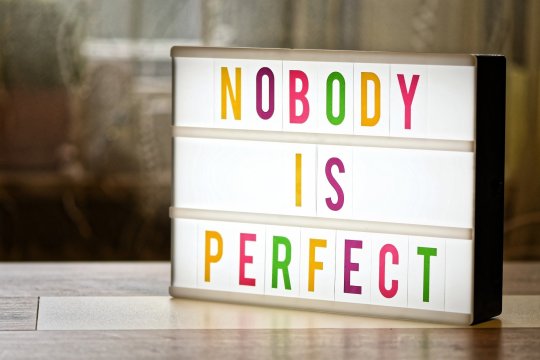
Now here’s my little secret:
I love all of these characters. They are some of my favorite on tv. Why? Because for good or ill, I recognize myself in them. Finally, I can turn on the TV, and see myself. Or, somewhat, anyway.
My favorite character out of this list? Loath though I am to admit it… Is Sherlock. See, what those well meaning folks didn’t know (the ones who say I’m I’m “too nice,” to be Autistic) is… well, if we’re being honest, I wasn’t always nice. A few years ago, I was that guy. I was a jerk because I thought I was the smartest person in the room. Which is really not a good look. In fact, sitting down and watching the first season of sherlock, (around three or four years after it came out) made me realize how much of a jerk I actually was.
There are other things there too. Things that tie me to all these characters, that I didn’t list. But that’s for another today.
For now, I’d like to add a caveat or two:
1) I’ve watched all the shows listed above, and adore them. As I mentioned, Sherlock is my favorite. He’s also the one I’ve watched the most (Repeatedly, in fact. Whoops.) and I recognize it’s not all bad. In the end, he learned to treat people better (somewhat) and certainly became more human over time. And, there are other deeply problematic elements of the show I’d like to tackle, eventually.
*cough* Queerbating! *cough*
2) I’m well aware that the above cases are all thin, white, able bodied, “straight” males. But I chose these characters for a couple of reasons. One, they’re the most prominent type on TV. Again, we loop back around to representation, and why we need more positive, diverse examples of it.
And finally-
3) In my last post, I mentioned I’d give some “good” instances of Hollywood Autism trope. But I didn’t exactly do that. Partially, because half way through, I thought…perhaps…I’m not the best to judge what might be a good Autistic character. I mean, I’m sure someone will read this and think my current aforementioned characters are fine. Heck! They might even argue my perception here, and say the characters are just fine. I accept that. In my life, both on and off the page, I recognize that I cannot, should not (and don’t want to) speak for an entire community.
Because of this, I cannot tell you how to write a “good” Autistic character, or what media is “acceptable.” I can’t even really tell you what a bad character is. Sure, I have a lot of opinions about it. But- if you’re on the spectrum and like and identify with the above? That’s fine. I mean, even with all the problems I noted (and some I didn’t) I certainly do.
On the other hand, if you’re a writer, and you want to write a character from this (or any, for that matter) community you aren’t part of, I caution you.
Do your research. Preferably from multiple credible sources.
Talk to people on the spectrum about what it’s really like. (Though try to steer clear of asking for emotional labor.You could, say, hop on reddit and ask the community there, for instance, which is a no pressure way to obtain potentially decent info.)
Finally, whatever you do, remember this-
Autistic people can look like anyone. We can act, and think and be different, like anyone. We are real, living, breathing people. Not robots, not sob stories, not tropes. People. So if you write about us, write us like people. And your work will be all the better for it.
-Your Loving Vincent
#autism#autistic problems#actually autistic#autistic experiences#autistic life#media#hollywood#film#TV#television#will graham#nbc hannibal#hannibal#sherlock#bbc sherlock#criminal minds#arthur conan doyle#writers on tumblr#writing#writers#tropes#spencer reid#autism in media#representation matters#autistic representation#liturature#own voices#do your research#emotional labor#caution
7 notes
·
View notes
Text
Let’s talk about talking about politics! Yay! Everyone’s favorite!
Over the past few weeks/months/years, I have had this strange insider seat to a bunch of criminal justice/poly sci professionals (as in, they get paid as professors or scientists or compliance officers, etc.) as they talk about politics and get angry at the general public for our lack of understanding, without having the patience to teach or explain.
Two problems: 1. the ivory tower issue of watching and not actively engaging in the social part of social science, but as their friend, I will note much of this comes from burnout through negative engagement and attacks; 2. expecting others to have had an adequate education to even know many of these tools exist in order to discuss things beyond our average public school education that cuts out Fridays and makes random half days because we can’t afford teachers or textbooks.
As an awkward observer, here are some things I never talked about in school, despite having a better political/civil/economics education included in my curriculum than many of my friends:
1. When we vote for someone, we are voting on a trend in politics. Not as a result, but a direction to move, and most voters vote for the candidate who is closest to their current values already, rather than following the trend of voting for who would move policy to match their needs.
2. Our values change far more than we think they do and they almost always align with a problem we require a solution to or a fear we would like to stabilize or go away, such as property taxes. Because we need to trust the person to solve our problems, especially if we are projecting large fears, candidates who are most likable. We don’t like to stir the pot, we just want it to go where we want, fighting for something is exhausting for everyone.
3. We consider political agendas to be moral agendas but do not agree on obligations. Many feel powerless, others are powerless, we talk about responsibility, but without acknowledging those first two things, it sounds more like blame. We also imagine many things to be wishful thinking that are enacted successfully elsewhere and fail to understand or use logical reasoning to really discuss issues. Anything will be an experiment because the US is so huge, but it is a scalable experiment working in other places, often we don’t understand that until we’re abroad and sick.
4. We’re not sure how to translate policy, and our country was built by and for lawyers. There are very little areas where we agree as a society on black/white right/wrong, and in many ways that’s good, but when it comes to discussing policy, it can be very confusing.
To account for these aspects, people use charts and grids. Much like personality tests, these are useful for creating a foundation upon which to debate and discuss, but are ultimately made by humans in order to generalize and will have errors and discrepancies. But the political spectrum has rarely been the single line most of us were taught. Instead, it is often a grid used to navigate the direction and preference of trends. Most people are much more moderate than they think, but have problems that need cooperative solutions, like the water crisis and fires on the west coast, disaster relief in the south, crop failure in the midwest, and ticks and diseases in the northeast. We all have huge problems and some areas are insulated from them for now, but they will come. How we navigate and demand solutions for those problems is what creates policy and the policies we agree with because of our value is what dictates our vote.
So here’s some charts that human people made to talk about these things with and they have helped ground a lot of engaging conversations with people as I watch them argue but not get angry, because there’s a visual thing to talk around. Those kinds of tools should be everywhere.
The political compass:
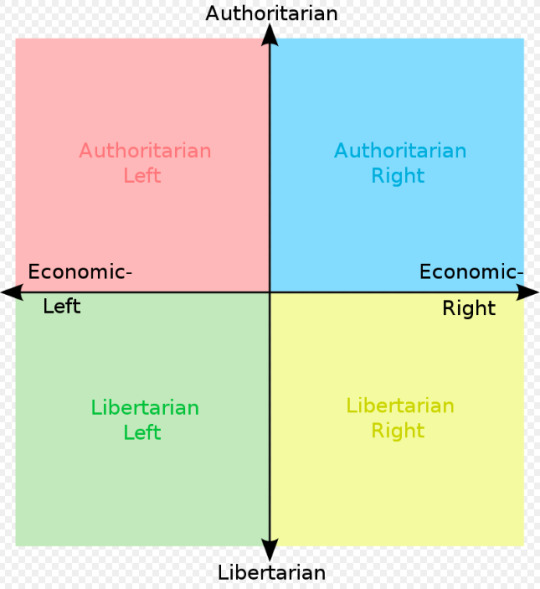
via Wikipedia: political spectrum
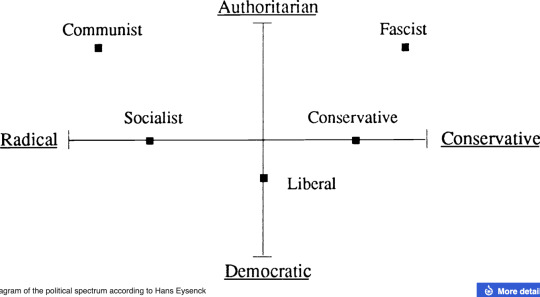
^
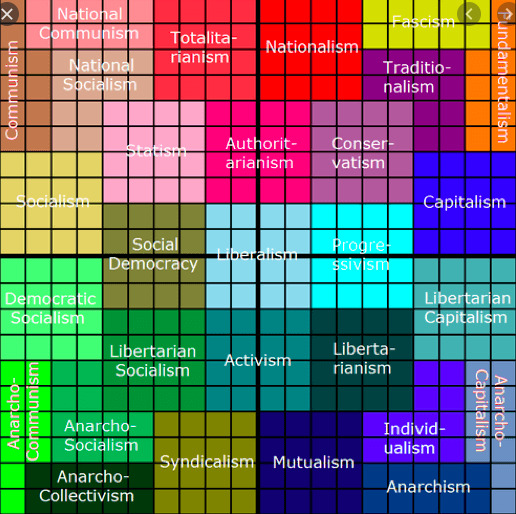
^A generalization of what different areas might look like. I’ve seen so many versions of this, but I liked the way this one because it gave me a better understanding of words I’m more familiar with and where they fall within the broad concepts. I couldn’t find the source.
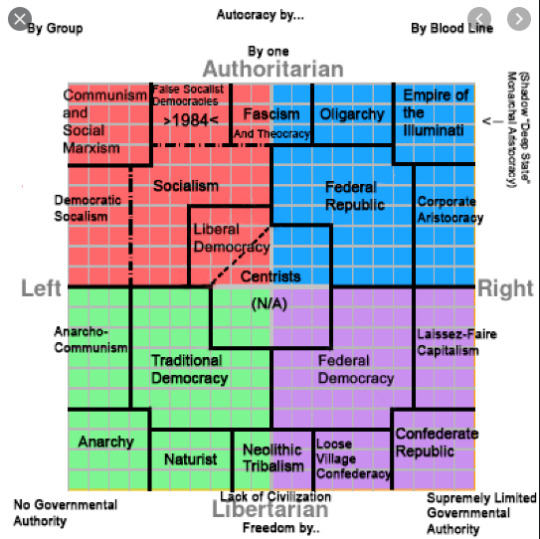
^ Here is another one from Google that took me to a shady site, so I didn’t link it, but the goal is to just be familiar with the different ways people structuralize and use definitions and terms to divide them up, in the end, the general understanding is all that matters, and our goal is to be functional, for the government to be usable by the people. Hamilton, the musical, was/is so important for many reasons, but one of the big ones is that it reminded us that this fight of trends and moving around the board has been going on since the very first election of a president to America. It’s always about one group pulling another, creating a tug-of-war that keeps us near the middle, hopefully.
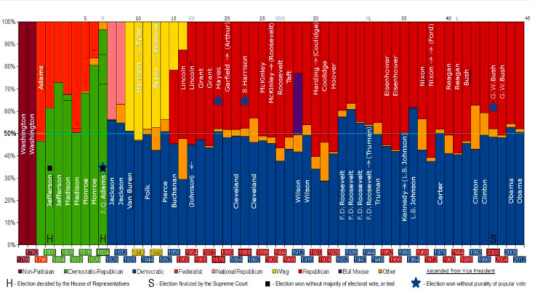
This is a graph showing the individual party ideologies of past presidents by a site called Fact Myth. It is showing the party split between individuals and while we could argue and speculate about accuracies and meanings, whether a president was pushed to make a decision as a person, etc. in the end, they represent the will of the people and the trends we with to follow to solve problems at the time.
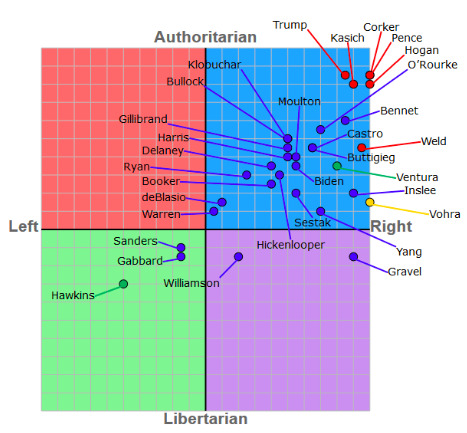
^An outline someone made of 2020 candidates on Reddit that has been going around for a while. Jake showed this to me and while he was perfectly receptive to me saying that yeah, but a person made this and they can have agendas and just put people places, he also had some really great points on how Americans often think we’re moderates, but what we perceive to be in the middle is often skewed by capitalism. That’s not to say it’s bad, simply that if we’re talking trends and problems and solutions, we have to understand where we are on the real scale, not just our own. We will also tend to vote for those who are closest to us, rather than moving in the direction of us, so, say someone sits right where Ryan is, Ryan drops out; now, despite their personal political preference being on the edge of the middle moderate square, they move to Biden rather than Warren or Sanders because Biden is closer to their original place, even if, coming from Trump, moving to Warren/Sanders would pull the political trend back toward their moderate preference.
Not everyone does this, obviously, but I’m fascinated by how our individual personalities affect how we decide politics. Are you a “next best thing” kind of person? Are you a “obsess relentlessly until it’s done” kind of person? Are you a “don’t fix it if it ain’t broke? Or what about “out of sight out of mind, doesn’t bother me, I don’t care” kind of person? So many of the ways we solve our daily problems are reflected in the ways we move our own political affiliations during voting times. I just think that’s interesting because I’m a social science nerd though.
A friend from Brown who is much older than us (also a social science nerd <3) pointed out that she grew up with such antagonizing propaganda during the cold war and beginnings of technological boom and peak oil, and it all said the same thing, anything outside the blue is morally wrong and heavily corrupt. I thought that was an interesting point about exposure and remembering past problems, how voting ages overlap to find new solutions or rely on old ones, and what it would cost us to see American politics on a global scale.
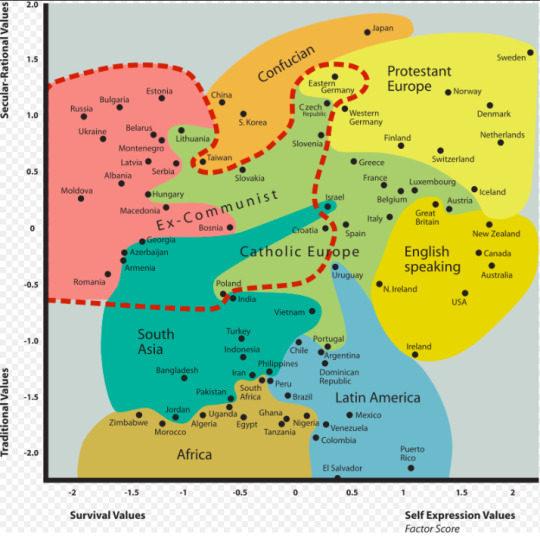
^This is a global scale of values (not politics) from the wikipedia page on political spectrums, and I thought it tied into the conversation in interesting ways, especially when we look at American generation differences in individualism and social cooperation and how they are viewed by each other to both be equally negative. There’s a whole world of solutions and different ways things our done, but we’ve been taught from birth that some are bad and others are exceptions and ours is good.
Vox has an interesting tool to figure out where abouts you would lie on the compass. I think debating it with others is a better way, since it’s a primarily relative scale (unless you prefer those structuralist ones, but keep in mind that it’s a preference, not a requirement). But I thought I’d include it for those who may not have access to that kind of conversation.
In the end, consider your morals and how they are different from your current values, and how your current values are affected by your current problems, and how you want the world to look, how you want trends to move, and how your biases of experience or ignorance might play a role in that. I honestly didn’t really think about healthcare until I was in Ireland and saw how simple an alternative was and how freeing it felt. My parents can’t even imagine it (and they are of the class who should most desire those changes), they don’t have enough of a base knowledge to understand how it works, it’s electricity after gaslamps.
Anyway, just thought I’d share some of those tools. As a skeptical person, I want to remind everyone that these are tools, not documented facts, and fighting about where people are on the graph and where we might be is part of how we come to conclusions about rights and wants and solutions and needs and what we actually value. Most of us, in the end, value comfort and hope, and we vote for the people we think provide that to us. The problem often lies in people misunderstanding their own comfort and relying on ignorance rather than hope. I found these graphs useful in grounding my talks with overwhelming professionals and finding some semblance of peace in what I wanted to hope for and I hope maybe for some of you they can provide that as well. ❤️
If, like me, you reached your 20s and realized a gaping hole in your education, I also recommend the Crash Course series on US Politics. It helped me understand a lot of things that were skimmed over in textbooks or left as multiple choice answers on a standardized test. Politics are a series of solutions to the problems we face as a social group, and knowing how to talk about them completely changed my own feelings of helplessness when communicating to others.
#politics#political spectrum#political compass#education#american politics#voting#policy#society#sociology#anthropology#discussion#education access#crash course
20 notes
·
View notes
Text
Dune Genesis by Frank Herbert
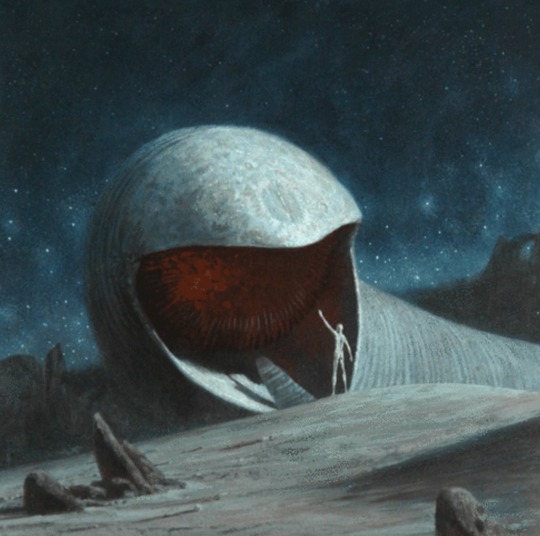
(Image by John Schoenherr, text via: https://vasil.ludost.net/dunegenesis.pdf)
This essay was originally published in the July 1980 issue of Omni Magazine. It has never been reprinted, and most DUNE fans have not had the opportunity to read Frank Herbert's description of creating his masterpiece
Dune began with a concept whose mostly unfleshed images took shape across about six years of research and one and a half years of writing. The story was all in my head until it appeared on paper as I typed it out.
How did it evolve? I conceived of a long novel, the whole trilogy as one book about the messianic convulsions that periodically overtake us. Demagogues, fanatics, con-game artists, the innocent and the not-so-innocent bystanders-all were to have a part in the drama. This grows from my theory that superheroes are disastrous for humankind. Even if we find a real hero (whatever-or whoever-that may be), eventually fallible mortals take over the power structure that always comes into being around such a leader.
Personal observation has convinced me that in the power area of politics/economics and in their logical consequence, war, people tend to give over every decision-making capacity to any leader who can wrap himself in the myth fabric of the society. Hitler did it. Churchill did it. Franklin Roosevelt did it. Stalin did it. Mussolini did it.
My favorite examples are John F. Kennedy and George Patton. Both fitted themselves into the flamboyant Camelot pattern, consciously assuming bigger-than-life appearance. But the most casual observation reveals that neither was bigger than life. Each had our common human ailment-clay feet.
This, then, was one of my themes for Dune: Don't give over all of your critical faculties to people in power, no matter how admirable those people may appear to be. Beneath the hero's facade you will find a human being who makes human mistakes. Enormous problems arise when human mistakes are made on the grand scale available to a superhero. And sometimes you run into another problem.
It is demonstrable that power structures tend to attract people who want power for the sake of power and that a significant proportion of such people are imbalanced-in a word, insane.
That was the beginning. Heroes are painful, superheroes are a catastrophe. The mistakes of superheroes involve too many of us in disaster.
It is the systems themselves that I see as dangerous Systematic is a deadly word. Systems originate with human creators, with people who employ them. Systems take over and grind on and on. They are like a flood tide that picks up everything in its path. How do they originate?
All of this encapsulates the stuff of high drama, of entertainment-and I'm in the entertainment business first. It's all right to include a pot of message, but that's not the key ingredient of wide readership. Yes, there are analogs in Dune of today's events-corruption and bribery in the highest places, whole police forces lost to organized crime, regulatory agencies taken over by the people they are supposed to regulate. The scarce water of Dune is an exact analog of oil scarcity. CHOAM is OPEC.
But that was only the beginning.
While this concept was still fresh in my mind, I went to Florence, Oregon, to write a magazine article about a US Department of Agriculture project there. The USDA was seeking ways to control coastal (and other) sand dunes. I had already written several pieces about ecological matters, but my superhero concept filled me with a concern that ecology might be the next banner for demagogues and would-be-heroes, for the power seekers and others ready to find an adrenaline high in the launching of a new crusade.
Our society, after all, operates on guilt, which often serves only to obscure its real workings and to prevent obvious solutions. An adrenaline high can be just as addictive as any other kind of high.
Ecology encompasses a real concern, however, and the Florence project fed my interest in how we inflict ourselves upon our planet. I could begin to see the shape of a global problem, no part of it separated from any other-social ecology, political ecology, economic ecology. It's an open-ended list.
Even after all of the research and writing, I find fresh nuances in religions, psychoanalytic theories, linguistics, economics, philosophy, plant research, soil chemistry, and the metalanguages of pheromones. A new field of study rises out of this like a spirit rising from a witch's cauldron: the psychology of planetary societies.
Out of all this came a profound reevaluation of my original concepts. In the beginning I was just as ready as anyone to fall into step, to seek out the guilty and to punish the sinners, even to become a leader. Nothing, I felt, would give me more gratification than riding the steed of yellow journalism into crusade, doing the book that would right the old wrongs.
Reevaluation raised haunting questions. I now believe that evolution, or deevolution, never ends short of death, that no society has ever achieved an absolute pinnacle, that all humans are not created equal. In fact, I believe attempts to create some abstract equalization create a morass of injustices that rebound on the equalizers. Equal justice and equal opportunity are ideals we should seek, but we should recognize that humans administer the ideals and that humans do not have equal ability.
Reevaluation taught me caution. I approached the problem with trepidation. Certainly, by the loosest of our standards there were plenty of visible targets, a plethora of blind fanaticism and guilty opportunism at which to aim painful barbs.
But how did we get this way? What makes a Nixon? What part do the meek play in creating the powerful? If a leader cannot admit mistakes, these mistakes will be hidden. Who says our leaders must be perfect? Where do they learn this?
Enter the fugue. In music, the fugue is usually based on a single theme that is played many different ways. Sometimes there are free voices that do fanciful dances around the interplay. There can be secondary themes and contrasts in harmony, rhythm, and melody. From the moment when a single voice introduces the primary theme, however, the whole is woven into a single fabric.
What were my instruments in this ecological fugue? Images, conflicts, things that turn upon themselves and become something quite different, myth figures and strange creatures from the depths of our common heritage, products of our technological evolution, our human desires, and our human fears.
You can imagine my surprise to learn that John Schoenherr, one of the world's most foremost wildlife artists and illustrators, had been living in my head with the same images. People find it difficult to believe that John and I had no consultations prior to his painting of the Dune illustrations. I assure you that the paintings were a wonderful surprise to me.
The Sardaukar appear like the weathered stones of Dune. The Baron's paunch could absorb a world. The ornithopters are insects preying on the land. The sandworms are Earth shipworms grown monstrous. Stilgar glares out at us with the menace of a warlock.
What especially pleases me is to see the interwoven themes, the fuguelike relationships of images that exactly replay the way Dune took shape.
As in an Escher lithograph, I involved myself with recurrent themes that turn into paradox. The central paradox concerns the human vision of time. What about Paul's gift of prescience-the Presbyterian fixation? For the Delphic Oracle to perform, it must tangle itself in a web of predestination. Yet predestination negates surprises and, in fact, sets up a mathematically enclosed universe whose limits are always inconsistent, always encountering the unprovable. It's like a koan, a Zen mind breaker. It's like the Cretan Epimenides saying, "All Cretans are liars."
Each limiting descriptive step you take drives your vision outward into a larger universe which is contained in still a larger universe ad infinitum, and in the smaller universes ad infinitum. No matter how finely you subdivide time and space, each tiny division contains infinity.
But this could imply that you can cut across linear time, open it like a ripe fruit, and see consequential connections. You could be prescient, predict accurately. Predestination and paradox once more.
The flaw must lie in our methods of description, in languages, in social networks of meaning, in moral structures, and in philosophies and religions- all of which convey implicit limits where no limits exist. Paul Muad'Dib, after all, says this time after time throughout Dune.
Do you want an absolute prediction? Then you want only today, and you reject tomorrow. You are the ultimate conservative. You are trying to hold back movement in an infinitely changing universe. The verb to be does make idiots of us all.
Of course there are other themes and fugal interplays in Dune and throughout the trilogy. Dune Messiah performs a classic inversion of the theme. Children of Dune expands the number of themes interplaying. I refuse, however, to provide further answers to this complex mixture. That fits the pattern of the fugue. You find your own solutions. Don't look to me as your leader.
Caution is indeed indicated, but not the terror that prevents all movement. Hang loose. And when someone asks whether you're starting a new cult, do what I do: Run like hell.
16 notes
·
View notes
Text
Persephone | John Wick x Reader (One)
Words: 2262
A/N: Just an idea that popped in my head at three am. What is sleep haha. I might post a few oneshots that are related to this one, not sure if I want to make it into a proper series, given the other wips I have. Depends on how I feel, I guess. Let me know what you guys think.
Warning: Usual JW-verse violence, reader is also an assassin
-
Now teamed up with the Bowery King to take down the High Table, John Wick still needed allies that were willing to risk their lives to help their mission. There weren’t many that would want to oppose the High Table, so their options were limited. John took the time to heal up while they planned High Table’s downfall, using the Bowery King’s people to scout for other assassins.
“There is another option,” the Bowery King said, leaning back in his chair.
John took a swig of bourbon and raised an eyebrow in a silent question.
“Persephone,” he grinned. John recognized that name, not just from the Greek mythology, but of the assassin that nickname belonged to. The Bowery King continued, “I’ve heard she’s in a tough situation right now, though. Wanna know why one of the most deadliest assassins in the world have been out of business this whole time?”
“I assume you’re going to tell me anyways,” John said, his pitbull having jumped on his lap.
“A puppet is useless when it realizes they no longer needs strings to move. She started asking questions and knowing what they’ve created, her people… restrained her. She’s constantly being monitored, none of my people had seen her alone. It seems that she’s lost her memory.” The Bowery King shook his head at the woman’s situation.
“Why not kill her?”
“They’ll probably want to use her again. It’d be a waste to throw away the skills they gave her. All they can do is have her forget she even has them until the time came to utilize her, have her dependent on those strings again.” He tilted his head and looked at John. “And you’re gonna have to be the one to cut those strings for her, John Wick.”
-
You could vaguely remember your family. At that point, you couldn’t even remember their faces, only the feeling that they gave you; warmth, love, comfort. You were raised along with other kids to be killers. With a cutthroat regime that mirrored ballet, the Instructor, a former student of The Director, would continuously run drills and eliminate those who couldn’t keep up.
You were one of the few that made it and it wasn’t simply through determination or strong work ethic. You were scared. No one knew what happened to those kids that were eliminated, maybe it was literal, but you didn’t want to find out. It was surviving through fear, until you were strong enough to overcome it. If they killed you, fine. If they didn’t, then what?
Execute the mission, no mistakes. Like a ballet recital.
The missions and the training were the only life you knew. The targets you were assigned to were only pieces to a massive puzzle to the world that you were raised in. Eventually, you had enough to make out an image. The Underworld where highly trained assassins were everywhere. There was a system, strict rules to follow.
You were familiar with the Continental, the hotel you and many others used while working, and the coins used to gain access to the serves that the Underworld provided. You eventually became familiar with the other faces at the Continental and around you.
One in particular stood out. The Boogeyman. The man, the myth, the legend. You ran into him a few times when he was still active, a tall man with a calm demeanor. It was like standing next to an ocean around him. Many respected him and even feared him due to his reputation of being Death himself. You couldn’t imagine the Underworld without John Wick.
Until he got out.
The night of his impossible task was the same night you made a difficult decision. For a long time, you knew that you wouldn’t be able to escape the hands of the Instructor until you were skilled enough to overpower her, so you waited.
Using your resources, you found out what happened to your family. They owed a debt to the Instructor and they paid it off with their daughter. If it had stopped there, you could move on, but it didn’t. The Instructor had them killed anyways, using the trainers and a few of the older trainees to do the job. They knew and they kept it from you.
Life under the Instructor was all you knew and you could continue as if you never knew your family’s demise or you could release yourself from her hold and make sure it never happens to anyone else.
John Wick stormed through the building looking for the Instructor, but there were already bodies scattered around the place, either unconscious or dead with their throats sliced open. You tried to avoid using loud weapons, preferring stealth so as to not alert everyone at once and especially the Instructor. Although it would have been considered sloppy to leave unconscious bodies on your part, you had no quarrel with everyone under the Instructor, only the ones ordered to kill your family. Besides, you knew of the ones that were reluctant to follow orders and killed off those who followed without question.
There was a trainer that you had been close with and took you under her wing. She’d push you to train harder and had faith that once you think you’ve reached your full potential, you could push even higher. And all that time, she hid that secret about your family. She was the leader of that mission, after all.
You saved her for last. It wasn’t as satisfying as you thought it would be. She knew the day was going to come when you find out and she was ready for it. With the blade she gave you for your initiation, you fought her until you had her pinned down, running the blade through her throat. She choked on her own blood, a smile on her face. A shiver would have ran down your spine you hadn’t known how much of a relief it might have been for her. Maybe she wanted out, too.
The door slammed open and the Boogeyman appeared, his gun raised. You stood up slowly, your hands in the air with your blade on the floor. He kept the barrel trained on you and you were glad he hadn’t shot on sight. It would have been over quickly, but you wanted to be the one to turn the Instructor in.
“The Instructor should be holding up in her office, fourth floor,” you said, slowly taking a golden coin from your pocket and holding it out to him,“just let me go. My other targets weren’t home. I need to go get them.”
He seemed to mull it over in his head and ultimately lowered his gun. He held out a hand as you tossed the coin to him. John nodded a thanks towards you and headed over to the fourth floor.
That was the last time you saw John Wick. Unfortunately, the others were ready and so was the Instructor. Her last mission was to wipe you clean, drug you until you can’t remember a thing. And while John Wick was able to finish his impossible task, the Instructor’s remaining people were able to finish their mission as well.
-
It was hard to believe that the young woman that he saw take down assassins from her former home was running a flower shop. Then again, he did the impossible and got out of the Underworld until he was forced back in again.
There was always another worker with you, even on your lunch breaks. Whoever took over for the Instructor was placing a tight hold on you.
John waited until the last customer walked out, five minutes before closing. He walked towards the shop and slipped in before the door closed. You were busy sorting out inventory to notice his presence, your coworker hovering close by you.
Ever since you woke up in a strange bedroom with people you didn’t recognize, they told you that you were in an accident and they were your found family after you ran away from home. In fact, the flower shop was theirs but they gave it to you to run. You were thankful that they took care of you while you recovered, but you would appreciate it if they gave you some space to figure yourself out alone. You haven’t even bothered telling them your strange dreams, either. They were cold and violent and worst of all, you were the one holding the blade.
“Mari, can you double check the boxes we have in the back so we could update the inventory list?” you asked your coworker. She pursed her lips then nodded, grabbing another clipboard with a copy of the list and headed towards the storage.
You breathed out a sigh of relief, already feeling lighter once she left the room. You walked to the front to close up when you jumped, seeing a tall man in a suit waiting.
“Oh, I’m sorry. I didn’t hear the door,” you told him, putting your clipboard down and walking towards the counter, “Can I help you?”
Upon closer inspection, the man’s brown eyes seemed tired but alert, his long black hair just above his shoulders. He was quite handsome that you could barely look him in the eye, and surely a man like that would have already been taken.
The corner of his lips turned up slightly. “I was looking for you, actually,” he said smoothly, pulling out an object from his suit jacket.
You watched him cautiously, inching closer to the counter where Marion kept the small handgun. You didn’t like to use guns, you didn’t like the sight of them for some reason, but Marion insisted on keeping one at the store.
He took out a golden coin and held it out. You grabbed it from his large hand and inspected it, the engraving feeling strangely familiar to you under your finger pads.
“Do it!” a voice hissed in your head, the image of a woman choking on blood, the strong iron stench hitting your nose and soaking into your hand that held some kind of dagger.
You dropped the coin, backing away from the man. “Who are you?” you demanded.
He held out his hands. “My name is John Wick,” he said, “And I’m here to help you, Persephone.”
“Persephone…”
“Persephone, again!” an older woman shouted. She stood in front of a wall of mirrors with her hands on her hips, staring down at you, your feet aching and sweat pouring down your face. “Get up!”
“You’re asking to be killed, Mr. Wick,” Marion spat, suddenly at your side with a gun in her hand. “There’s a heavy price for your head, it’d be a shame to have been hidden from the High Table for so long, only to be killed in a flower shop.”
“Mari, what are you doing?” you asked, shocked that she knew the man.
“I always knew the Instructor favored you, but to have kept you alive and have us babysit you even after she’s dead was too much.”
Marion gripped your forearm, nails digging into your skin. You gasped, a strong sense of betrayal taking over you as the flight or fight response kicked in. She had never treated you this way before and it didn’t take much to understand that something was wrong. More flashes of your past flew through your mind, particularly when Marion mentioned the Instructor.
Your hands shot out, twisting her arm and knocked the gun out of her hand. She stumbled on the crates on the floor, your surprise attack leaving her stunned. You used her momentary imbalance to grab her hair from the roots and slammed her forehead against the counter, knocking her unconscious. You dropped her and stepped back, your hands shaking as you start to sweat.
“What did I do, what did I do,” you began to mumble over and over.
John gave you a moment, locking the front door and flipping the sign, moving around you to turn the front lights off. You took a deep breath and exhaled slowly, gripping the counter for support as the headache and nausea start to settle. John picked up the coin and carried Marion’s body to the back office then got a cup of water from the small breakroom. He set the paper cup in front of you and took the time to scan the area, pulling the blinds down.
When you came to, you took a sip of water and shuffled yourself over to where John stood, your eyes stinging from the tears that didn’t seem to stop. You sniffed, quickly wiping them away, your head still sore from the occasional flash of an old memory in your head. Your phone had been buzzing during that time, several missed calls from your so-called family. You turned off your phone and stuffed it back in your pocket.
“Thank you,” your voice cracked as you spoke to him, “but why?”
John sighed, silently assessing your current state. “I need your help, but first, we need to leave. They’ll be coming after us soon.”
He held out a hand for you to take, letting you make the choice to go with him. You may not have all of your memories back, you recognized him enough to know that going with him would mean gaining your independence and actually finding out who you were. You grabbed his hand and he lead you through the back entrance and through the streets, all the way down below the city, back to the Bowery King.
You were back in the Underworld, but at least you were not alone.
#john wick x reader#john wick imagines#john wick#keanu reeves imagines#first time writing for John Wick#I should be focusing on my other wips but I can't#I'm still staying at a motel guys :'(#Let me just win the lottery so i could at least get a place to live#Keanu Reeves
289 notes
·
View notes
Text
Unpopular opinion: god, Batman v Superman had some really good ideas that it chucked down the U-bend, and there are parts of it I really enjoyed. I don’t regret seeing it (and yes, I watched the Extended Cut. All three hours). I was just discussing this with @masutrout, and here’s a slightly abridged version of my thoughts.
Look, I know no-one sets out to make a bad film, and with so many moving parts, a film getting released at all is a miracle. I know it’s not down to one person and (I’m quite glad) it’s not up to me, because I have no idea how to make films. But if I had, say, a magic lamp and a wish for an ideal BvS and DCEU in general... Here’s what I liked; here’s what I’d magically tweak in a parallel universe; here’s a rant. A 2.2k rant. An Extended Cut rant.
I know it's all desaturated and so on, but I genuinely really love Snyder's style. Dude can set up a shot, and he knows how to use chiaroscuro. In theory, I totally get why they'd look at him and go, "his shit is like comics brought to life, pick him." I wish he'd just... allow a bit more colour into it and let people colour grade properly, because the Metropolis/Gotham Clark/Bruce contrast could've been played up beautifully with visual language and colour too. I mean, I know he can do overwrought iconography and imagery, look at how they went to the trouble of CGI'ing Clark's cape in every scene because it was such a banner, and the pop of red.
I'll admit, I wasn't always all-in on Affleck's performance, though it was one of his best in his back catalogue (I am one of the few people I know who has zero problems with him as an actor and tends to find it more the material, but I grew up on Kevin Smith films and his shtick works for me, even if he has a manner. I'm not too discerning). But. A Bruce who's tired and broken-down and greying and has lost even more, and still in the aftermath of that, tries to find hope and "I can't let this happen to anyone else" again, in the wake of one more death? God yes give it to me. A Bruce who's taller than Clark and just plain tall in general, because maybe Kryptonian ideals are different and because it'd give Bruce one more thing to desperately play down? God yes. Just... in general, middle-aged Bruce but without a lot of the Batfam stuff (which I like, I have a love for several of the Bats, but my favourite stories are always solo) with a regimen of painkillers and who's turned Wayne from an "I'll just jump into the water feature" jackass to a schmoozer and flirt and maybe a drunk. Take out the branding. I wanted Bruce as a broken idealist, not a fascist. It's actually way more fascistic than the original Dark Knight Returns, even. But goodness, the whole idea of an established, tired Batman is good. There’s a reason the comics and animations keep coming back to it.
"Superman was just a story. Superman was just the dream of some farmer from Kansas." I forget the exact phrasing, but everything about that idea, and this idea that Superman is as much an ideal for Clark to live up to as everyone else, and he’s daunted by it? Yeah. There’s something in there.
I loved everything about Jeremy Irons' Alfred. Seriously, everything. Tech guru, little less RP, little rougher around the edges, clearly has some scars of his own. Absolutely biting, even more than most incarnations, and gets all the best lines. Yes, keep that, it'll do.
I liked the voice changer... halfway. To me it makes way more sense than putting on a voice, which is a bit daft and way more variable. I just wouldn't have gone that heavy on the processing, so that Bruce sounded less like a hacker from 1999. I also thought it was a good way of representing how Bruce desperately tries to emotionally distance himself when he’s the Bat, and how his anger has made him colder.
Batman as just a rumour or an urban legend is great, and a wonderful contrast to Superman, who’s this bright, transparent... common god. Bruce never did it for credit, he did it to get it done. It’s stretching the bounds of credulity, sure, but in this strange, semi-operatic storytelling with heavy myth feel, it makes a bunch of sense thematically.
Bruce meeting Martha Kent, and their first meeting being him saving her life. Even this broken-down Batman who thinks he’s a mess. Actually, just more Martha in the DCEU in general. I mean, I get why they didn't lean into it so much because they maybe wanted Bruce and Clark to feel more like equal peers, rather than Bruce being too dadly, but... god, again, more Martha. In JL, in something, if nothing else. Martha who's lost a son (Jason); Martha who later has a son in another city trying to do good and is worried as hell about them (Dick's canonically in Bludhaven PD at this point); Martha who is one of about five people in the world who knows who Batman is and hasn't spilt that information; Martha who saw Bruce at the cemetery and might have some really interesting things to say to him, angry or forgiving; Martha who is one of the few people who's seen the good in the Bat (when Bruce himself couldn't)... Man, I was so, so glad that fic leaned into that. I would read a regular comic book of just Martha and Bruce Being Reluctant Friends and Worrying A Little About Their Kids, But Maybe In An Enemies-To-Friends Way Because Holy Shit You Had A Fucking Spear What the Fuck.
No, really, wait, I’m going to go on about Martha again. The scenes in BvS where she was basically saying, "God, don't kill yourself for them, come home, if they're gonna hate you they don't deserve you..." On the one hand she could've been a contrasting voice to Jon, but this way also makes sense. "I know you want to help but please don't kill yourself..." It was always both parents in the comics who affected him equally, even if the Donner films had his father's death, iirc. It was Martha who pushed to keep him, Jon who taught him not to break people and show off, Martha who taught him how to cook and be gentle with things and in Superman: Birthright, which MoS is heavily, badly based upon (I love that miniseries, time to read it again) she researches alien sightings in the hope he won't be alone. I get why they went for a more "grounded" Kryptonian uniform thing, but Martha made his costume, in the original canon. In all canons, she was a huge help in creating the "Clark Kent" persona (yeah, sure, maybe a woman would have something to say about making yourself quiet and shrinking in a room and having to look helpful and nonthreatening all the time, but Snyder and Goyer were never gonna be the kind of people to explore that and even Waid, whom I love, barely touches on it). Every other film or comic book is crap, dead, or crap and dead dads. Clark's relationship with his mother and father is hugely important.
Getting to see Bruce doing the society beat, and just a little more philanthropy would've been great. You don't have time to build that character? Sure, OK. Take out the Flash dream sequence and the sleeping-with-random-women, maybe don't have a totally unnecessary but kinda hilarious shower scene, and replace it with some identity weirdness where Bruce and Clark are stuck interacting as civilians a little more. Or something about what the hell happened with Jason and the manor, though I don't mind most of it being unexplained. There, still building character, still serving a purpose, you can fit a brief scene into your three hour movie. Civil War had a ton of "Steve Rogers and Tony Stark brood or sit in rooms talking to each other."
If they were going to throw away all the secret-identity potential, they could at least have done it interestingly. That scene at the gala made it clear how hard they both had to act, and Jesus, the idea of Clark eventually, finally finding someone else who has to lie and cut off what they can do, who has to bumble almost the way he does... That could've been interesting and also maybe worried the shit out of him. Or made him want to talk to this crazy billionaire who goes round combat-booting people in the face and try and get what his deal was, which could've led to more interesting misunderstandings.
And then there's Diana, who's not a bumbler but a "nothing to see here, rich eccentric" type too (no wonder she and Bruce had weird insane chemistry in that "sizing each other up/I know exactly what you are" way), and why the hell does Clark basically never see her? I actually don't mind the whole "she's only here for her photo and never meant to get involved, so she's only needing to chase Bruce," that makes sense, but after Doomsday?! In Justice League?! She understands what it is for the world to be frightened of you, resistant to you, the urge to go and hide where it's safe with your family, the loneliness. I mean, just imagine MoS!Clark meeting her and the goddamn relief of it. And the way it could've played off the whole Jonathan Kent is a creepy "kill em all" weirdo now thing, if they insisted on keeping it.
Similarly, please god please show Clark being a journalist more. Perry chewing him out more. A mild hint of office politics. That's the perfect place to leaven a rough film with a dose of humour. People wouldn't have been so bothered by "Is she with you?", which is actually not that terrible a line next to some Marvel "zingers", except for it being so tonally inconsistent. A gentle thread, a few moments of it. Maybe have Clark save someone and have to scrabble to keep his identity a secret, like in MoS - maybe a minute, you could go for some physical humour or a mild sight gag. Obviously, this'd be pre-bombing the courthouse. Relatedly...
Take out Nairomi and the branding. They serve very little purpose, story-wise, basically never come back into the plot, and only serve to make Clark and Bruce look like dicks unnecessarily when if you want to inject flaws, you have a ton of opportunities to do it with how they deal with people and their loved ones, how they deal with perps, and their brooding moments.
Seriously, Bruce kicking the shit out of people and investigating shipments from the Black Zero and World Engine crashes would be enough to worry and piss off Clark, as would the whole "I am the night"/lack of transparency shtick. I mean, for a start, John Byrne retconned their first meeting that way in the 80s and that issue is actually great (Clark is trying to arrest Bruce when they meet, because he's young and idealistic and maybe a little up himself and he's been Supes for about five and a half minutes). Look: Clark is being revered and hates it. He blames himself for Black Zero, at least a little. He has excellent reason to be desperately projecting brightly-coloured not-a-threat and also hate that someone else is terrorising a city and violence is being revered, especially when Metropolis and Gotham are still so raw. I mean... Snyder and Goyer did the fucking stupid offensive 9/11 comparisons. Look at how that affected people and still does to this day; emotions run bloody high, and the entire point of Clark is that he's still human and terrified and guilty. And with Wallace O’Keefe and all the threatening notes... look, there's already a good plot in there!
Meanwhile, Luthor clearly knows Bruce has been sniffing around the K shipments and could've just tipped off Clark about that as well, saying, "He clearly is gonna use it for his own power, and with how sinister and opaque and violent he's already been, he's gonna hurt people." Having his heritage used against people is one of Clark's worst nightmares, it was implied pretty clearly in MoS, and you'd still have the righteous anger. No branding needed. Kryptonian artefacts and the entire masked violent vigilantism are already enough "this is someone who thinks he's above people and can decide their lives" to piss Clark off. He could even investigate that as himself rather than Supes. You need it to be an unanon tip-off and Keefe wouldn't have access to that information? Sure, OK, just filter it through Mercy Graves and make her a "worried confidential source." I mean, she's in the movie and completely wasted. Why not actually, you know, do something with her? Clark wants to believe the best in people, and he might dislike Luthor personally, but he doesn't know Luthor's out to get him yet - or wouldn't, if the writing was better. Again, Birthright, the text Goyer repeatedly ripped from, did this brilliantly. The brand... it's overkill. Grimdark overkill.
I actually... look, I had a really fun, if baffled, time with this movie, but goodness I’d like to see what it could’ve been. And now all the film sites are waving goodbye to Batfleck again while running DC retrospectives due to Birds of Prey, and Cavill’s blue tights are in doubt, it seemed like as good a time as any.
#tru goes dc#batman v superman: dawn of justice#batman v superman#bvs critical#but also kind of positive?#i'm trying to be positive here too#dceu#dc#meta#ie me rambling
13 notes
·
View notes
Text
Psycho Analysis: Count Orlok

(WARNING! This analysis contains SPOILERS!)
I don’t think a lot of people fully grasp just how important Count Orlok is, mostly because Nosferatu is one of those movies that is kind of on the line between mainstream and obscurity due to how it has sort of merged itself with popular culture in such a way that major elements of it are now taken for granted as ancient parts of vampire lore. You see, Nosferatu is the movie that originated vampires being killed by sunlight. That trope you take for granted, that has appeared in essentially all vampire media you have ever seen? It all came from this movie.
And his death alone, a death that altered the course of popular culture for nearly a century and counting, would be enough to make him one of the most important villains of all time – it just so happens that death is attached to one of the creepiest, most horrifying, most striking vampires seen in film before or since.
Actor: Count Orlok is portrayed by Max Schreck in one of his many stage and screen roles. Yes, many. Contrary to popular belief, this was not Schreck’s only role, nor was he a vampire; he was just a strange man who did most of his work in Germany. As for this role, you have to keep in mind that everything Schreck did here had to be insinuated by how he moved, how he looked, and all that due to this being a silent film. Thankfully, he looks utterly terrifying and his movements really help sell him as a disturbing monster barely able to keep up the facade of humanity.
Motivation/Goals: Orlok is, to put it simply, a monster. His sole motivation is to feed on people, to the point that the people in the Carpathian Mountains of Transylvania are utterly terrified him and refuse to venture out at night. When he finally decides to head off to England, he brings with him a unique entourage – coffins filled with diseased rats, so he can spread the plague to the point where he can feed and no one can suspect a thing. It makes sense, considering the film’s title is actually not the Romanian word for vampire (that would be, funnily enough, “vampir”); the roots are unclear, though a common guess is that the Greek term “nosophoros” may have inspired it, as the phrase means “plague-bearer.” It does fit in well with this film, but it should be noted that Nosferatu only popularized the term in the consciousness of pop culture, as it was used in quite a few bits of 19th century literature prior, including the book Nosferatu ripped off: Dracula.
Aside from his desire to feed, he doesn’t seem to want much more, and that makes him absolutely horrifying. He is willing to damn thousands of innocents to disease-ridden death simply so he can feed, and even ignoring that he’s still draining the blood from innocents. Orlok is basically an animal with a vaguely human form, with no sense of morality or decency, making him a stark contrast to the more aristocratic vampires that were all the rage beforehand.
Personality: Orlok is basically a savage animal putting forth the bare minimum to appear human; he certainly doesn’t look the part, nor does he really act the part either. He is a different kind of vampire, especially compared to ones from around the time his film came out, playing up the more nightmarish elements of a monstrous, undead, bloodsucking creature of the night and forever establishing that if you want your vampires to be evil but don’t want to make them look suave or charming, there is a perfect alternative.
Final Fate: His death is a true game changer: the rising of the sun catches the count unaware and utterly destroys him. This is considered the originator of the idea vampires are killed by sunlight, as this was not an idea in vampire folklore or even in the novel Dracula that this film ripped off; Dracula went about business during the day as normal. But this death here, it altered vampire fiction for all time. Some of you out there may not have even been aware that vampires do not die to sunlight in the old myths. Of course, this leads to the disturbing realization that, technically, Twilight is more mythologically accurate to vampires than just about every other piece of vampire media ever made.
Best Scene: Orlok gets three of the most striking moments in all of horror, and Im going to list them all to make up for the fact that he doesn’t have a best quote since, you know, he’s a character in a silent film.
The first is the scene where Orlok massacres an entire crew onboard their ship, and then stands menacingly onboard alone. The second is the scene in which Orlok rises from his coffin for the first time, which is one of horror cinema’s most terrifying moments. The third is the iconic and striking image of his shadow on the wall as he stalks the night.
Of course, for younger crowds, you might appreciate the scene where he screws around with the lights in the Krusty Krab in the beloved SpongeBob SquarePants classic “Graveyard Shift.” I do have to wonder, though… As cheap as Mr. Krabs is, why would he hire the living embodiment of plague to work in his fast food restaurant? That has to violate a health code or two.
Final Thoughts & Score: Count Orlok is easily one of the most important villains in cinematic history. This is one of the easiest 11/10 scores I will ever hand out; it should have been obvious from the get-go.
Count Orlok’s mark on culture is absolutely undeniable. There is the obvious: he helped popularize that vampires are killed or weakened by sunlight, and all of that because the director the film didn’t actually know how to kill him, so he just threw that in to end the movie. The enduring pop culture idea that vampires die by the light of the sun is all because a director was too lazy to come up with a better idea, isn’t that just wild?!
But beyond that, there is his overall design. Orlok is monstrous, rat-like, barely something one could consider human… but then you look at Dracula, particularly Lee and Lugosi’s takes, and you see the stark contrast, with Orlok being more animalistic and monstrous while Dracula is more aristocratic and classy. This was deliberate on the part of director F.W. Murnau; German Expressionism was all about stylization, and so he set about to stylize his vampire, make his take on Dracula and his ilk look the part he was playing. And thus he created Orlok, a vampire who looks like an anthropomorphized plague rat and plays the part oh so well. This terrifying design is so iconic it has spawned a slew of imitators throughout pop culture, as well as leading to the “Looks Like Orlok” trope.
To think, we might have been deprived from this, one of the most influential and important vampires in history, cinematic or otherwise, were it not for rampant piracy in the wake of the Stoker lawsuit that demanded all copies of Nosferatu be destroyed. Can you imagine a world without Nosferatu, especially in light of all this film and its villainous Count Orlok gave us? It would be a far different and a much less interesting world. We wouldn’t have villains like Freddy Krueger, The Master, Baron Vain, or NOS-4-A2, vampire fiction would be radically different, and God only knows what else fictional vampires would be like if some of them didn’t look like bald, inhuman monsters.
One final note: Nosferatu is actually in the public domain, meaning that you can actually use Count Orlok in your own works. Want to make him the head vampire of your story? Want to make him into the plague-bringing Horseman of the Apocalypse Pestilence? Want to put him into some touching love story when some beautiful doe-eyed babe woos him and brings out his better nature? Well, legally, you can! Not only is Orlok perhaps the greatest vampire of all time, there are zero ramifications from anyone slapping him into their stories. So great an evil is he, he is allowed to permeate all of fiction and absolutely nothing can stop him.
39 notes
·
View notes
Text
An absurdly long Frozen 2 theory - The Land of the Mist
You think I was kidding with this meme, right? No. I don’t mess around when it comes to Frozen 2 theories.
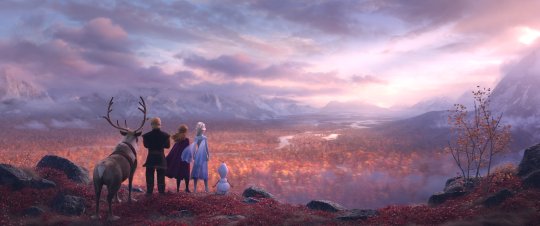
I spent my free time wisely and finally brought together this theory I’ve been thinking about for a while now. After the release of the official trailer I can gleefully announce it wasn’t violently contradicted and I was able to expand on it, too.
Summing it up before we start, it’s about the repeated presence of mist in the Frozen 2 trailers, and how it is closely related to Scandinavian myths, namely elves, who are said to live in a parallel world. It also covers the topic of spirits as representations of the four elements.
I don’t want to murder anybody’s dashboard with 2k words and multiple images, so I put a safe ‘keep reading’ right after this. The following are the topics we will be covering, and if you want a very, very short tl;dr with just the basics, just jump straight to the conclusions:
The Introduction
The Elements
The Hidden Folk
The Pink
The Mist
The Conclusions
Keep in mind that this is just a theory that might be potentially proved wrong by the following trailers and sneak peeks (ihopenot), but this is what I could grasp from the information we’ve got so far. Also, I wrote the vast majority of this before Annecy, so a few details might slip by...
With this said, let’s get started!

The Introduction
In the Frozen 2 teaser trailer we can see the Arendellian gang gazing over the fabled autumn forest filled with trees and rivers. But in the Frozen 2 Official Trailer, we see a very similar shot, almost mirror-like, of the past scene, and this is where everything begins.

Clearly, they’re not in the same place. One has trees, the other one doesn’t; one looks magical and mystical, and the other just… doesn’t. While it is a beautiful scenery, it just doesn’t hold up with the other place’s visuals. It’s like an E3 vs Actual Game comparison.

It’s of interest that Iceland, which seems to be the place they’re taking the most inspiration from, looks really similar to the scenery seen in the image above. For instance, this is Þingvellir in autumn:
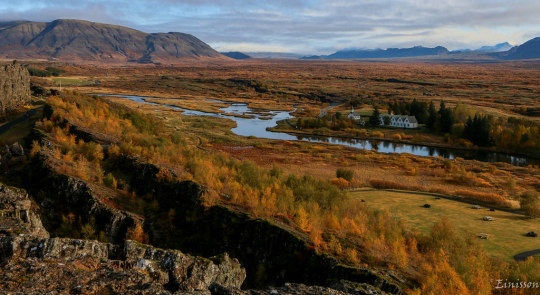
These places look… really similar. And the shots above are basically mirrored versions of each other. So that leads me to believe that the spotlight of Frozen 2 so far, the autumn forest, is located in a magical realm hidden by mist.

It seems that this ‘portal’ the Arendellian royals found needs magic to be activated; as Elsa touches the mist with her hand it starts opening. We don’t know yet if any kind of magic can open it, so for now, let’s say that a magic wielder needs to be in contact with it. (Keep this in your head because it’ll come in handy later.)
But as soon as the gang goes through it, the mist closes in on itself, covering everything up, even the stones, and if I’m not wrong, they’ve already disappeared:

So we have this sort of mirror dimension made reachable by some kind of mist portal and surrounded by 4 stones with the famous symbols that have made us lose our minds. Thankfully we now know thanks to bath bomb merch (and confirmation by Annecy) that they represent the 4 elements: Earth, Air, Fire and Water.
And before we discuss the mist (because that’s another whole topic) let me pull up an unpublished theory that miraculously survived the official trailer and analyze the symbols and their meanings together.
_________________________
The Elements
The four elements of alchemy are the following and feature strikingly similar designs to those of the ice crystals. We are going to be using them to decypher the ice crystals’ meaning.


The easiest one to tell is the top right one which bluntly establishes its connection with the earth symbol.
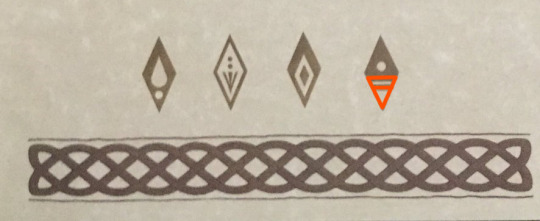
The rest are not so straightforward, but there is something interesting in them. If we ‘cut’ the crystals in half, we will realize some of them are ‘fragmented’ in some way in the top triangle or the other, and some are not. Those fragmented correspond to air and earth, and the ones that are not, correspond to water and fire.
I know I’m totally not making myself clear so here’s what I mean:

This way, top left symbol would mean fire, which is not so unlikely considering that it could mimic the look of a flame rather than a water drop. Bottom right symbol, also known as Anna’s symbol, would mean air: and if we take into account the strange merchandise we’ve seen lately, this would make sense, considering Anna is always surrounded by leaves in one way or another. Anna’s color scheme and emblems also match with the ‘air’ theme, which is represented in the Frozen universe by leaves flying.
Bottom left symbol (dubbed Elsa’s symbol by many) would mean water. With enough imagination we could assume that it is an ice crystal what’s shown in it. And last but not least, the top right symbol means earth.
So, it makes enough sense for now. But we have things unresolved. That is, Anna’s strange symbol, her sudden affinity with the air and Elsa’s connection with the Nokk. And this is when Frozen LA comes into play.
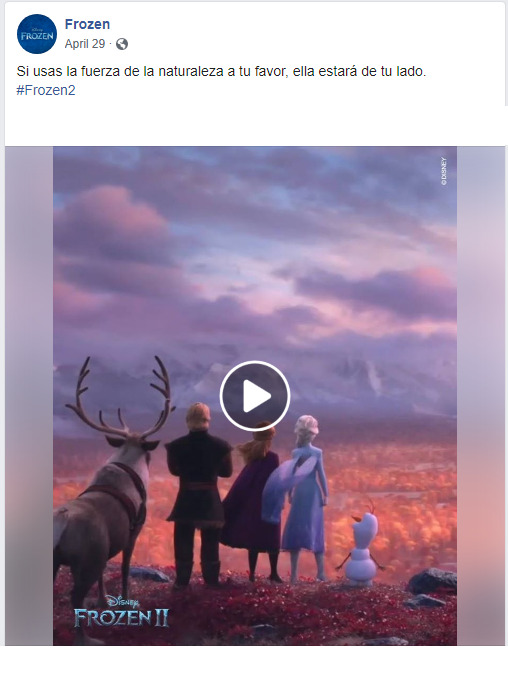
“If you use the force of nature in your favor, it will be on your side.”
I don’t think Anna has powers, for many reasons. First and foremost, it would be very predictable, cliché and lazy writing in general, something I don’t think the Frozen 2 creators are aiming for.
Secondly, why didn’t they manifest earlier? We know very little about the magic system in the Frozen universe but it seems that there are two kinds of magic users: cursed and born with them. Anna evidently wasn’t born with powers. Now, if we say that Anna somehow got cursed with wind powers, that would be a bit more interesting. But I doubt it’s the case. And if we’re being real, Elsa already can sort of control wind with her own powers, creating storms and the like.
What I think is that nature and its force plays a major role in Frozen 2. We have already been officially introduced to the Nokk, a water spirit Elsa will have to prove her worth to. And in the Frozen 2 Official Trailer, we’re shown what looks like the spirit of Earth, a rock giant who doesn’t look friendly at all:

Then Fire. After the last trailer, I don’t think anybody’s controlling that fire. Spirits, so far, seem to be just spirits; creatures that control themselves. We know Nokk is a shapeshifter, apparently, and maybe the other spirits can shapeshift, too. But if there’s anything I have to say, is that the fire doesn’t look natural in the slightest even when we’re talking about elements of nature, so it might be wrongfully influenced by a villainous figure? I don’t know, just throwing a semi-theory there. We’re coming back to this later.
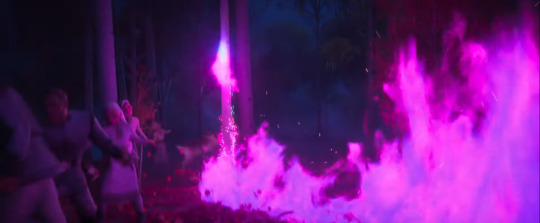
Last but not least, Air. Air has been confusing. The way it is represented is by the flow of leaves through the air. In this scene in the teaser, the kids are in a forest, and I really doubt any of them are controlling the wind. The girl looks surprised; the boy has a bunch of leaves point to him and throw him up in the air. Unless there’s a third human character in this scene we’re not aware of, I’d say the wind is not controlled by anybody, at least in this particular scene; so again, it controls itself, like a force of nature.
Now knowing that Anna is connected to the air element somehow and Elsa to the water through the Nokk, is that these scenes that follow one another in the teaser, now have a whole new meaning.


Anna is lost in a rocky cave. Elsa is fighting against the fire that encircles her.
Air versus Earth, Water versus Fire; the opposite elements, facing each other through Anna and Elsa.
Another convergent idea is that there might be people that represent each of the elements and interact with the spirits; think of guardians, for example. Each of them would have a certain affinity with a specific element. We could say from what we’ve seen that Anna has an affinity with the air, Elsa with the water, and who knows what the other characters are.
If the Nokk is a mythical being that represents water, it’s not out of question to assume that the other elements also have a connection with real life mythology.
We can find an interesting individual in Norse mythology. Quoting Wikipedia:
In Norse mythology, Fornjót was an ancient giant and king of "Gotland, Kænland and Finnland" meaning Gotland, Kvenland, and Finland Proper.
His children are Aegir, (the ruler of the sea), Logi (fire giant) and Kári (god of wind).

As you can see, this is the Norse mythology interpretation of the elements. We’re missing the Earth element, who would be Jörð, personification of Earth. How closely Disney is going to follow mythology is unknown to us, but considering there is going to be a whole book dedicated to the myths, I’d say that they are taking this very seriously.
__________
Now, let’s get back to our initial topic. I believe this forest they find in the teaser is the fabled magical land where the spirits of the 4 elements reside; where Elsa’s powers came from, and where she should’ve had that ‘life she was supposed to live’. We see people that look very similarly dressed to the Unknown Girl in the teaser:

Sami, seemingly light brown clothes, boots and sash. But there’s far more to these people than at first glance, and this brings us to another topic…
_________________________
The Hidden Folk
The first connection to this mythological race was not made by the fandom but by the Broadway show itself, in which the rock trolls are replaced by the Hidden Folk. So let’s start with what our friend Wikipedia says about them:
Hidden people (huldufólk) are elves in Icelandic and Faroese folklore. They are supernatural beings that live in nature. They look and behave similarly to humans, but live in a parallel world. They can make themselves visible at will.
Remember what we said in the introduction? The Arendellian gang enters a magical realm covered by fog...
Clearly, the Hidden Folk as we see them in Frozen Broadway won’t make an appearence in Frozen 2, because they represent the trolls from the movie. But the connection is interesting, and there’s even more to it.
Idunn mentions being one of the children of the Northern Nomads in the Broadway show, implying that she was not born in the royal family but rather married into the throne. This is further confirmed by the fact that in Frozen, we can see Agdar, the heir to the throne having his coronation; Idunn isn’t a royal, or at least not an Arendellian royal. She came from somewhere else.

And if we take into account the Polish leaks, Idunn is the Unknown Girl from the teaser, further strengthening the bond between these people we see in the autumn forest and her.
Thanks to Annecy spoilers, we know that Agdar visited the enchanted lands and was left “traumatized” by something that went terribly wrong. But more on that later...
__________
I told you to keep in mind the ‘gateway activated by magic’ in the introduction. Okay, so we’re saying that Agdar visited this place in his youth (and probably met Idunn here) but we’re overlooking something.
How did he make it to the forest at all? I doubt anybody who’s not proficient with magic would be able to open the portal. I mean, the portal didn’t open up by itself; Elsa touched it with her magic. So either:
a) Agdar has powers
b) He went with someone who did have powers
c) Some other convoluted reason
d) We’re thinking too much into this and the autumn forest can be accessed without going through any weird portal
I think I’d go with b. But you judge that.
__________
The other connection, as I have said, is the Sami. The Sami people inhabit Lapland, a region encompassing Norway, Sweden, Finland, among others. We know that Kristoff is basically one of them, and one of their most prominent occupations is reindeer herding.
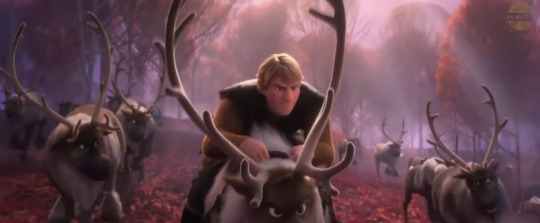
The teaser trailer showed Kristoff guiding a multitude of reindeers, and with the official trailer showing us that there are people who actually live in the forest, the idea is much more clear. There are Sami living in the forest, or at least Disney’s interpretations of them, which may be synonymous or at least have a connection with the Hidden Folk or whatever name they’ll receive in Frozen 2. Remember Northern Nomads was a term used in Frozen Broadway, and Sami were originally nomads...
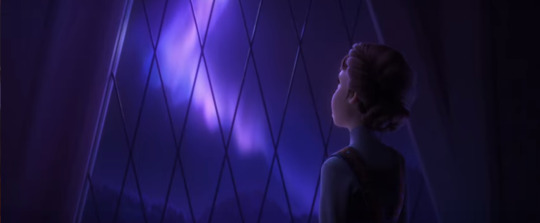
So, I really tried coming up with an actual theory for those suspicious looking northern lights Idunn looks at but I failed. Sorry. The only idea I have is that Idunn is talking to Elsa after the accident and telling her her own version of the origins behind her powers, and maybe, just maybe, those unnatural northern lights represent Elsa’s sworn enemy, pink.
Yes, pink. Purplish pink or pinkish purple, to be exact.
_________________________
The Pink
Pink has always been a problem for Elsa. The night of the accident, she was shown terrible imagery that’d scare her for life; her adult silhouette is absorbed, consumed by this purple mass. “Fear will be your enemy,” Grand Pabbie said.

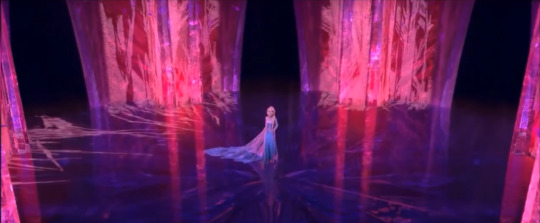
Later in her life, we see that whenever Elsa is feeling emotions relating to fear and despair, her ice cracks and turns a shade of pinkish purple. We all get that. But now. Why, for the love of Nokk, why is the fire pink? Nokk looks alright, just like water would look. The earth giants too. I don’t see anything strange with the wind other than it is… wind. But the fire is pink, for a reason we don’t know yet.
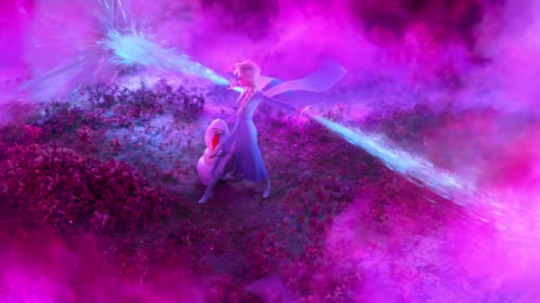
The sky turns pinkish after the accident. Why is literally everything that is bad for Elsa represented by pinkish purple?
And I have no definite answer for that. If I have to throw an idea, it’s a prophecy. A manifestation of sorts that just wants Elsa to stop breathing, which may be related to the presence that left Agdar terrified and Arendelle cutting relations with these northern lands. An inherited ‘curse’ of sorts, that may give us a new point of view of why Elsa’s powers were kept in secret. Maybe her parents really had something to fear. A legitimate reason to lock her away, as harsh as that sounds.
For now, let’s leave that in an ominous tone, and talk about the mist. Oh, the mist.
_________________________
The Mist
As we were saying before, the Hidden Folk are basically synonymous with elves. They are invisible (hence, hidden, huh), magical, and are not exactly humans, in the sense that they don’t meddle in their affairs, and live in a parallel world. We have already seen the ‘parallel’, ‘mirror’ symbolism with the gang gazing over the lands, but here’s more, if we insist.
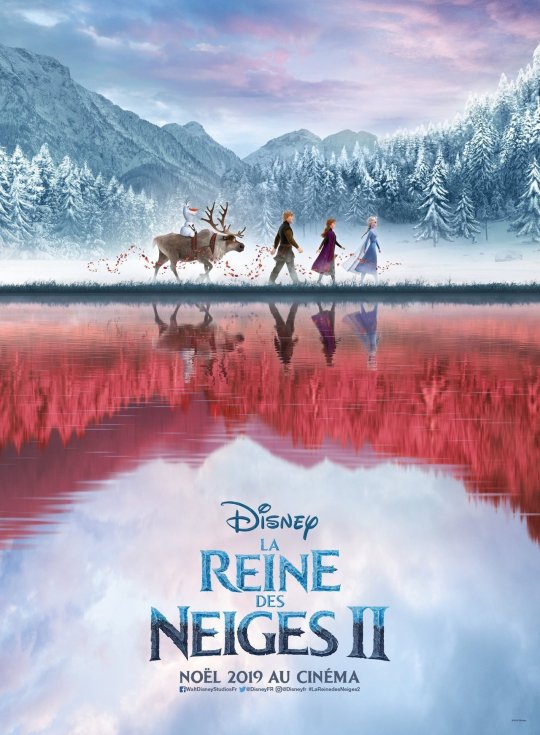
(Pss! Don’t wanna break it to you, but autumn forests just aren’t that beautiful. These ones are magical and misty.)
What elves look like varies from source to source. But they are very closely associated with mist, and live in meadows, mires and forests.
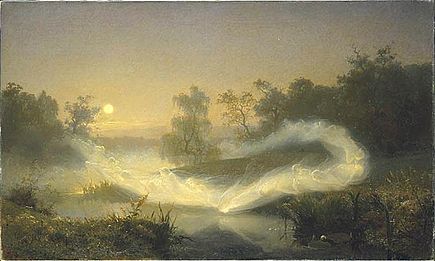
Quoting Wikipedia further:
The elves of Norse mythology have survived into folklore mainly as females, living in hills and mounds of stones.The Swedish älvor were stunningly beautiful girls who lived in the forest with an elven king.
The elves could be seen dancing over meadows, particularly at night and on misty mornings. They left a circle where they had danced, which were called älvdanser (elf dances) or älvringar (elf circles).
If a human watched the dance of the elves, he would discover that even though only a few hours seemed to have passed, many years had passed in the real world. Humans being invited or lured to the elf dance is a common motif transferred from older Scandinavian ballads.
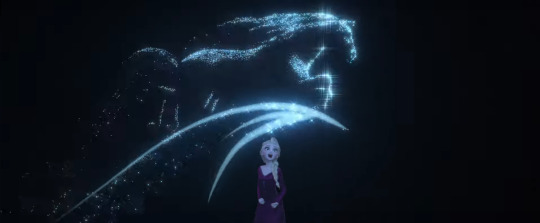
Humans being invited or lured to the elf dance is a common motif transferred from older Scandinavian ballads.
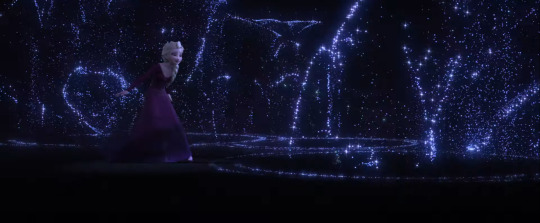

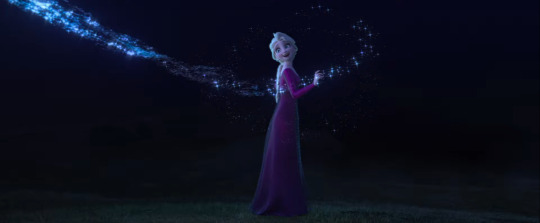
lured to the elf dance

Yeah, that’s not the face of someone who wasn’t lured.
Okay, okay, okay! I’m sorry if I got too excited about this and saying that Elsa got seduced by the dancing and singing of an elf is perhaps taking it a bit too far. But hear me out. Letting go of my no-crazy-speculation filter for a bit, I’d say that an elf/spirit was the one who incessantly sang to Elsa (remember, female singing), lured her into her dance showing her wonderful imagery of the spirits of the four elements of the parallel world, and then made her release the ice crystals (magic that has been building up for a long time) and go haywire. But you judge that…
What I mean to say is that I think that this concept of elves (maybe not called elves inside of the film, but at least the concept) and their relation to the mist are going to be present in Frozen 2. I’ve been thinking about mist for the past two months and this is the first time I manage to include it in a theory. I’ve wanted to -and will- say something that will sound stupid for a long, long time but I don’t care because it’s worth it. An image I stumbled upon while researching through elves. It’s called ‘Chasing after Hildur’.
It’s from a myth starring Hildur, the Queen of Elves. I’m not going to explain the whole myth, it’s not really relevant; but please, just look at that image. It’s more visual than anything, and it is that it looks ABSOLUTELY EXACTLY THE SAME LIKE THE MOMENT WHEN ANNA JUMPS OVER THE PRECIPICE.
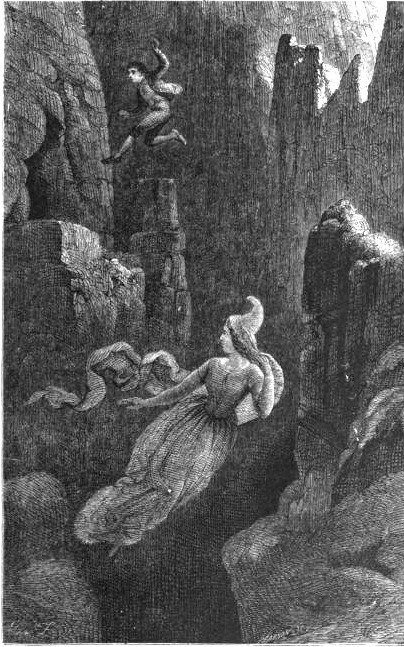
And I’m using all caps because I mean it.
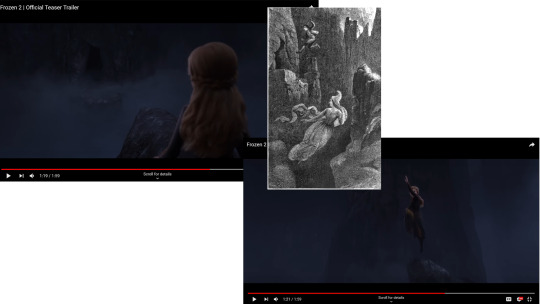
Is Anna chasing after the queen of elves? After a common elf? After the elf like creature that lured Elsa into the dance?
Might be a huge cosmic coincidence, may not be, but summing it up? Frozen 2 has elves. Yeah.
_________________________
The Conclusions
You’re finally here. Aka, Tl;Dr. And for the sake of not repeating ‘this might be’ and ‘probably’ every 2 seconds, I’ll sound really confident.
Maybe:
Frozen 2 features a beautiful parallel realm whose entrance is reachable when a magic user activates it. This is the autumn forest we see in the teaser trailer, contrasting to the more regular-looking place near the end of the official trailer.
The ‘Land of the Mist’ is the home of the Hidden Folk, elves, and the four elements of nature, who are sentient and are represented by four mythological beings. In these lands, magic comes and goes. But something terrible happened, and the harmony between the inhabitants and the spirits is no more.
This is the truth they are looking for; the origin of Elsa’s powers; she should’ve lived in this hidden realm of the hidden people, and nowhere else.
Idunn, her mother, secretly comes from this realm, and in Frozen 2, the sisters will learn about the family they barely got to know, and will have to prove their worth and fight an unknown evil yet to be revealed who Agdar already faced.
Elsa is the only person in the world who can bring the harmony back to the Land of the Mist and unify the four elements before it’s too late.
/Maybe.
Wow, I’m tired.
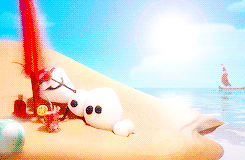
(It’s fall in my country, by the way, can’t do that.)
This is the furthest I managed to get so far with the help of 3 minutes of footage, Annecy and bath bomb leaks, and I’m sure even more theories are going to come to light as more days pass and the Frozen 2 trailer settles down in people’s minds. Might give some quick little update to this if something new comes up...
Would love to hear your theories and opinions as well! I’m sure we won’t stop till we inadvertently spoil ourselves the whole movie.
Goodbye and Happy Theorizing!

102 notes
·
View notes
Photo
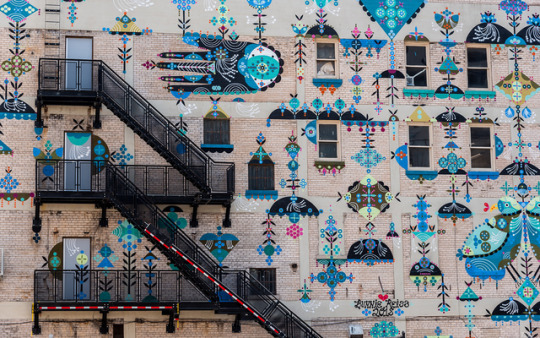

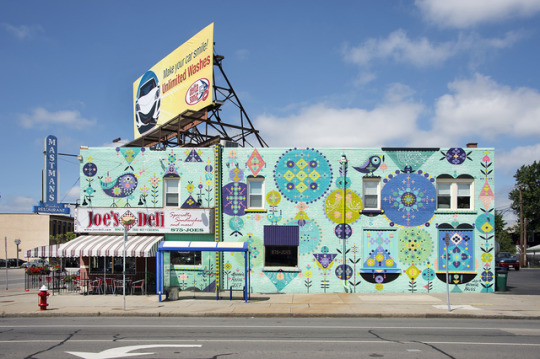
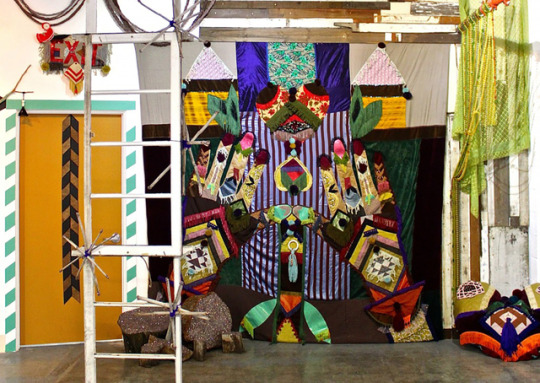
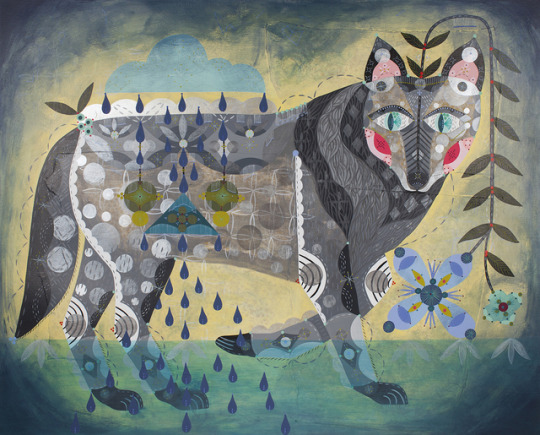
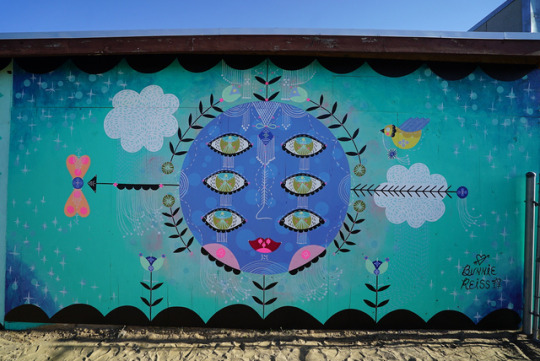
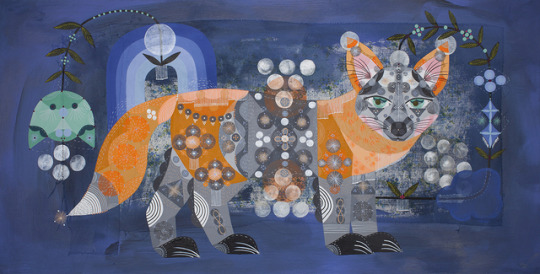

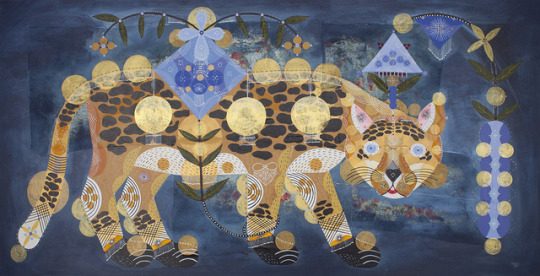
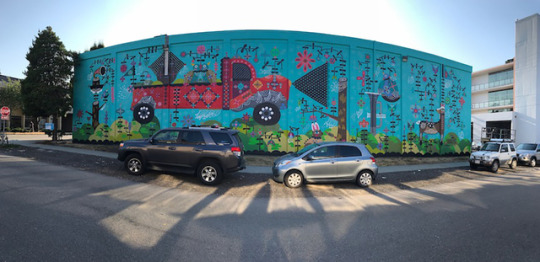
ART SCHOOL | INTERVIEW WITH BUNNIE REISS
A combination of folk art, psychedelia, nature, magic, stars and animals, the artworks by LA based artist Bunnie Reiss imagines a visual language and beauty that is both narrative and full of storytelling. Bunnie’s large scale murals have been and are still popping up all over Los Angeles, so we wanted to catch up with this talented lady to find out more about how she got interested in art, the subjects and themes of her work, and what she’s got coming up the rest of the year!
Photographs courtesy of the artist | Portrait by Tod Seelie
Could you introduce yourself to everybody? I’m Bunnie Reiss, muralist, installation artist and painter, living and working in Los Angeles. My work is a combination of folk art from my eastern European background, places I’ve traveled around the world, psychedelic dreams, strange imaginary worlds, nature, magic, the stars and animals.
I’ve worked really hard to create a fairly diverse career that includes painting huge 9-story buildings, designing custom patterns for fashion icons like Isabel Marant, building large space boats that float on imaginary clouds, and writing/illustrating children’s books. It keeps me crazy busy, and I am grateful to be living such a full life.
I own a 5 acre property in Landers, just outside of Joshua Tree, where we go for breaks from crazy city life and often gather with many of my artist friends. It’s super magical and I love it out there. I also have a very small Maine Coone kitty named Robert Plant that I treat like a dog and comes everywhere with me ;)
How did you first find yourself creating art or being interested in art? I was a tiny rebel with a large imagination, and I kinda knew from the beginning that I didn’t fit in. There are no other artists in my family, and I was definitely the odd ball. Art was, like most misunderstood kids, the only thing that felt really good to me. I loved museums, fashion, weird books and storytelling. There seemed to be huge worlds that were out there, and I had zero fear in discovering them. Recently a family friend sent a package with tons of drawings and art I did for her when I was a child, and it’s amazing to see the same imagery I use now in many of the funny things I drew as a kid.
How would you describe your work to someone who perhaps is just coming across it for the very first time? What would you want that person to maybe take away from it? As I mentioned above, my work is crazy combo of different things: Eastern European folk art, nature, imaginary worlds, psychedelic landscapes, animals. I have worked hard on my own visual language, my own dictionary, and continue to do so. It is an ever expanding vocabulary that I hope will keep growing until the day I die. I always want people to feel like they have a sense of place, that they can feel good, even for just a brief moment in the day (which is actually a tall order for most people). I want people’s imagination to go crazy when they see one of my murals!
What are your favorite things to paint or draw in your works? I absolutely love painting animals. They are my top. And hands are right below that.
In your various works you often paint portraits of animals, hands, mythical creatures and the natural world. Tell us about your subjects and themes you explore in your works? I have fairly consistent imagery, but the conversations are always different. For instance, the children’s book I wrote and illustrated a few years ago, The Cosmic Child, was actually about Plato’s Cosmology and the idea that we have a twin star in the universe. It was a book about never feeling alone. I like taking my simple imagery and combining it with complicated stories. It adds a layer of honesty and vulnerability. I am currently working on a new book about climate change, that will consist of 50 animal portraits. I decided that instead of trying to explain why climate change is such an important issue, I am using the idea of irreversible loss to describe what is might feel like to loose entire species. Visual art is so interesting because you don’t often get the back-story about why someone has made what they have made, but you can usually feel the emotion behind it. That to me is really successful, thoughtful work.
When your working developing a new painting or piece, how does it begin - take us from sketchbook, to color choices, to finished painting? I an an avid sketchbook user, and I tend to try and do as many drawings as possible, with no specific direction. It take the pressure off of things having to be ‘something’ and keeps things really interesting. When I’m ready to work on a body, I look back over the sketchbooks to see if there is a connection to any of the drawings. Sometimes I go back to sketchbooks from 5 years ago! Sometimes entire sketchbooks become dedicated to one idea. This process allows for a very organic build of my paintings. I am almost always looking at animal references, old quilts and folk art, and reading about magic symbols and the universe. All of my paintings and murals come from my sketchbooks, and are often repainted over and over again in different ways or patterns. I like exploring how many times I can do a single image and make it look unique. My color palette is fairly consistent, and I will push on darker or lighter themes (navy blues vs pastels), depending on what the mood I’m working with is. I like painting on antique papers and things that already have energy living in them, and my colors will be based off of the color of the papers. Mural walls are treated similarly, where I’m often trying to preserve and enhance the architecture of the building. I generally try and tie in my murals with something local, like an animal that is native, a myth about the city, the state flower, etc. It’s really fun and usually feels like some kind of treasure map where I’m unearthing weird facts about the places I paint.
What’s a typical day in the studio for you like? And what are you currently working on in or out of the studio? I try and keep regular day hours as often as possible in my studio, because if I don’t I sorta become a vampire who stays up all night and sleeps all day. I bring Robert Plant, my kitty, with me and he’s always around when I’m working. Sometimes I have to ‘clean’ all day long in order to actually get to painting. Sometimes I have to organize and move things around, or do other weird stuff, in order to get things going. It all depends on my mood. I just wrapped a bunch of paintings for my last show at KP Projects in Los Angeles, and that particular body of work will continue for a while. It’s mostly portraits of animals that are extinct or close to extinction, and ties into my book as well. I am always working on mural concepts, and there are tons of drawings and sketches on my walls that may or may not turn into murals. I also quilt sometimes and love to sew, especially when I am not feeling very inspired to paint. Murals and other public work can be fairly demanding, and quilting helps me to recoup when I have wrapped a big project and need to take a little break from painting.
How do you unplug yourself so to speak? What do you do to center or re-focus yourself if you find yourself stressed out about deadlines, art shows, and the sort? It’s definitely challenging, especially when you live in such a wild city like Los Angeles. I am so grateful to have a property in the desert, and I will often go out there for a few days to unplug and just be in the quiet. The stars are amazing, and laying on my deck and staring up at the sky does wonders for my brain. I also love to ride my bike and will sometimes go out on night rides, which tends to help me refocus and feel like I’m back in my body. When I have time, surfing is the absolute best! Painting, especially big things, takes you out of your physical body and puts you in a deep space of meditation. You are usually on a large lift, far away from anyone, concentrating but also kinda in a trance. You don’t really feel much of anything. When you finish a large project, you feel everything come back into you, and it can be overwhelming and exhausting. It’s imparitive that you find outlets that really help you to keep going at a healthy pace without getting to rundown.
What inspires you and your art? What are things that influence what you do and what you make? My imagination keeps me really busy, but reading Popular Science, going to libraries and book stores, walking in neighborhoods that I’m unfamiliar with, and traveling to countries where I do not speak the language keep me filled with information. I love architecture and looking at buildings, I get obsessed with walls I want to paint and will sometimes drive by to visit them. Going out in nature and just listening to the trees speaking to each other is pretty amazing.
Not only do you create painting, but you have been doing large scale mural works for quite a bit. How did that start and how different is it for you compared to works on paper or canvas? What do you like about muraling and what do you find to be the most challenging part of it? I lived in the Bay Area for a long time (well over a decade) and space was always an issue. I loved painting big, but hated trying to store anything after I was finished. I would also get fairly lonely working in my studio for long hours, and liked interaction, but a very specific kinds. Public art and mural painting solved a lot of these problems. I could paint HUGE and leave it, walk away, never look at it again. It was a freedom that I loved, and the very special was to interact with people and neighborhoods. At the time, it was so unique and didn’t compare to anything I had ever done. This was a long time ago, and I still feel exactly the same way. There is no better way to understand a community, a city, a neighborhood, then painting outside and really being a part of it. And people are so happy and grateful that you are adding something beautiful to their neighborhood. I also love that murals are free for people to look at, and so many demographics are affected by the work. You never know who will see it and be inspired. It’s powerful and humbling at the same time, mostly because the work is incredibly physical. It sometimes feels like you are running a marathon, painting for 12-15 hours a day, dealing with weather and trouble-shooting all kinds of strange things that can happen with different kinds of walls. I love big boom lifts, dancing and singing when I am way up high with my headphones on. I have such a great time when I am painting a monster wall in the sun! I can’t stand painting in the cold ;)
What’s been one of your most rewarding projects? And what kind of challenges did you face and how did you overcome them? This past year I was invited by the United Nations to paint a mural in Mexico City on climate change. It was amazing! I painted at the largest market in Mexico, and it was nuts. So much going on around me, so much pollution mixed with sun blasting a huge wall for more than half the day. I loved it, but it was also pretty crazy.
Since we call this feature, Art School, what tip do you have for artists and folks interested in becoming an artist? Work hard, harder than you ever thought you could work, but also work smart. You have a very long career, and lots of time to develop your own style and really build your craft. There is no rush, and your work will be that much better if you take the time to really develop who you are as an artist. Also, ask for help. Reach out to other artists and see if they need help. Be an active community member and don’t isolate yourself too much in the studio. Have fun! Travel the world ;)
Who are some important artists, past or present, you are inspired by? Remedios Varo Johannes Vermeer Louise Bourgeois Antoni Gaudi Shel Silverstein
So we gotta ask what are your FAVORITE Vans? The Era.
What do you have planned for the coming up? What are you looking forward to starting? Mural season is in full-swing, and it’s going to get really busy, with murals everything month until the end of the year. I am working super hard on my climate change book, and putting together a few projects that will tie in with that project. (and maybe a book tour). I continue to build up my desert property, and love that I can put energy into it slowly and really make it a life-long art project. I am working on expanding my mural practice into 3D objects, mosaics tiles, furniture and playgrounds. My murals are only one part of a much larger puzzle that I am putting together, and soon you will get to see entire worlds built by me. It’s an exciting time!!
FOLLOW BUNNIE | WEBSITE | INSTAGRAM
#Art#Vans#Vans Art#Art School#Interview#Bunnie Reiss#painting#muralist#mural#female artist#creativity#inspiration
9 notes
·
View notes
Text
I guess I know how George R* Mart*n feels because I can never finish any of my fics anymore!
I started writing this fic when SW EP 7 came out... in 2015. I never touched it again. It was about my OC Sarai and Steven. Since I’m probably never going to finish it I wanted to at least post it here for archival reasons. Feel free to read if you like!
Summary: The son of a deceased Resistance pilot, Steven Weatfield seeks refuge on the moon of Pantora with his living father in an attempt to escape the horrors of war and participation with the Resistance against the First Order. However, balance and fate seem to follow them when a Jedi, lost among the corridors of time for unknown circumstances, reminds him of his mission, and his mothers sacrifice.
Word Count: 2,962
Chapter 1
~~~~~~~~~~~~~~~~~~~~~~~
A long time ago in a galaxy far, far away…
STAR WARS
War never ends. It has been twenty-seven years since the rebellion’s triumphant victory over the Death Star, and likewise, the end of Darth Sidious and Darth Vader. However, the New Republic’s struggles are not yet over. The First Order has risen, and again, is spreading disorder upon the galaxy, forcing General Leia to build up a Resistance to push back further destruction. Casualties are always a factor, and even for the Resistance, the death toll and injured have recently reached peaks that were unforeseen. The sudden and dramatic losses have frightened large numbers of surviving resistance soldiers.
Steven Wheatfield, former trainee of the Resistance, has since resigned by desire of his surviving father. They are attempting to stay out of the conflict at all costs, currently residing in a small rural settlement on the moon of Pantora…
. . . . . . .
“In a world covered by endless water… the people of the Republic were driven to create artificial solders for war. This war was spreading through quickly— so quickly, it was soon leaving no portion of the galaxy untouched by its strife! But these two forces were not equal by all means. Yes, droid and clone were similar as fierce soldiers, each having their own distinct advantages, and likewise Sith leaders Count Dooku, and other such foes provided their means within the Separatists army. But! Leading the Republic’s armies, among the thousands of brilliant clone soldiers, was the Jedi!”
A series of sarcastic beeps came from a R6 unit after the long introduction, whose small chirps seemed to bounce off the snowy field and into the tall toupee colored grasses surrounding. A couple of crunchy footsteps would cease at that moment, as Steven stopped walking, and telling his story for that matter.
“What are you talking about, Wheatles?!” Steven cried, who so abruptly turned around at the moment of his R6 units bickering. “Of course the Jedi were important! Now would you please let me continue my story? The Jedi lead the Republic’s armies; they carried the torch that spread throughout the galaxy, and pushed back the dark, and those who came their way.”
The droid spat out another set of beeps, carrying with it the most unpleasant of sounds, which in return caused Steven’s face to blush pink.
“Y-You moof-milker!” Steven yelled. “The history of the Clone Wars is not useless! In fact, it just goes to show you why the Republic failed in the first place. From the corruption in the senate all the way to the very battles themselves that took place—they all were important!”
Steven paused for a moment to gather himself, soon his flush of color leaving his face. “I’ll bet if Jedi were still around…” His face relaxed, a little too much even, as his eyebrows rose up in a loathsome furrow. With this, his voice fell in depth, sending even more of his hot breath into the icy Pantoran air.
“If the Jedi were here, like they were then, maybe this war would already be over. Maybe… maybe Mum would be…”
A sudden gust pushed through the field, sending a dust of snow off the ground and into the air like powder. After the gust settled, a soft wave of snow began to fall—so soft that you barely noticed the moment it fell upon your lashes.
“The Jedi fought alongside the clone army for three years… And they would have done it too. They would have won. But… they’re gone now.” Steven paused, only shortly to express a gentle sigh. “You don’t think… those kinds of things are myths, do you?”
The R6 unit softly spoke up with a simple, long beep, which was by far significantly calmer than any of its other comments were beforehand. The droid’s head centered itself as his back legs lowered a tad. This caused Steven to stare down at his droid companion, soon his sorrowful look diminishing from the droid’s obvious apology.
“Thank you, Wheatles,” Steven remarked. He sighed deeply before saying, “come on. We better get you home before it starts snowing any harder. I know how much you hate walking through the stuff.”
Steven turned around to start walking his droid along the path they had been traveling down for some time. In the far distance a small village and a distribution of independent properties could be seen. From their chimneys, smoke from fires within all of the homes scattered about the landmass reached high into the skies like fingers stretching from a cloudy palm. This scenery, although lovely in its own way, still was strange to Steven. It wasn’t particularly the cold landscape, or the smallness of it all, but more rather how quiet it was. Steven was used to busy bustling of resistance soldiers, the sound of engines starting from all varieties of ships, and sometimes even the occasional laser shooting practice. Steven was used to getting his hands dirty in engine oil and grime, and the strain in his arms from piloting ships. To say the least, it was like he was out of his element. It wasn’t the same.
Steven first anticipated turning around and staying out in the field longer. That or he figured he’d might as well go off the trail and see what he could find out in the tall grasses of Pantora. Who knows? Maybe he would find some parts lying around or something interesting at least. He’d rather spend his time out in the cold then going back. Sitting around, doing nothing? No, that wasn’t his thing. Especially since sitting around or doing even simple chores required him to listen to his father mumble under his breath all the time; he made the sheer air in the room feel heavy. There wasn’t a day that went by that wasn’t quite otherwise.
Steven suddenly grumbled to himself, which wasn’t like him. He liked keeping a positive attitude, but this—this feeling—was getting redundant.
“I could just take my ship and fly off somewhere, ya know, Wheatles?” Steven spoke aloud. “We could fly right out of here and somewhere out there. Ya, that would be brilliant, wouldn’t it? But he says otherwise.”
Wheatles gave off a sigh sound in response. It wasn’t much, but it was enough to get Steven to cheer up some. Agreeing with Steven always seemed to help.
“Ya! That’s right! Can you imagine it? Steven and his loyal droid, Sir Wheatles, off into the galaxy! We need a team name though. Wheatles, maybe you should write this down—”
Before Steven could continue, his eye caught a glimpse of something in the sky at the opposite end of the field from where the village was. At first he figured it was a mere speck of floating black dust that just looked like something, but it was indeed something this time.
Steven focused more sternly on the object in the sky now, realizing that it was ablaze as it fell through the planets atmosphere. As it drew closer to the ground, he was beginning to realize it was a ship. He didn’t react until the ship plummeted into the ground some two-miles away. After its obvious crash, was when he had a delayed response.
“Hell!” Steven yelled. “Did you see that? Did you see the ship fall from the bloody sky?!”
His droid was quiet as Steven began fanning his face uncontrollably. This was unbelievable. Well—it was believable in the sense that it happened all the time, but not here. Not for them.
“We gotta go check it out!” was Steven’s next bright idea. His droid beeped a few times, indicating its own distress, but this didn’t seem to give Steven any second thoughts. “Who knows what that was? It could be a resistance ship for all we know! Somebody needs our help!”
Steven started running. He started running for so far and so long that Wheatles was a good few paces behind him by the time they crawled over the little hill that lead them to the crash site.
The landscape from one side of the hill, and to the other, was quite drastic. A decent sized indention had been marked in the ground on the other side from impact. The trail that the fallen ship had left from hitting the ground, and then having skated across the dried tan grasses, was black and covered in soot. Some of the stalks of grass further to the side that had not been completely crushed had some traces of embers, whose glow, thankfully, did not increase in size for the time being.
To say the least, Steven was ecstatic. But he was also cautious. The ship didn’t look resistance, at least a type that he was used to seeing. It seemed to have an old design, from what parts he could distinguish what was left of it. The ship overall was so jumbled that it was hard to tell. The metal was obviously still hot on the outside, which caused a steam to escape from its structure and into the cold air.
“Should we check it out?” Steven asked his droid, who had just a second earlier made it beside him to join him in his stare at the crashed space ship.
Steven seemed to answer himself rather quickly. “Yeah, let’s check it out!” he exclaimed excitedly, and rushed down the little hill and up towards the ship. He stopped only when he was close enough to feel the warmth from the crash site. With narrowed eyes he tried to look through the rising dust and soot through his glasses, scanning the area before him as much and as diligently as he could to make sure there was nobody about.
But even with his careful eye, he could see nothing.
“Whoa, Wheatles, you don’t suppose… anyone survived this?” Steven asked out loud. From the outward diagnostics of the ship, it seemed someone could have survived. It was wrecked, sure, but it wasn’t so wrecked that anyone within couldn’t have found a way to take cover to land. But still, he couldn’t be too careful.
R6 beeped a few times, which caused Steven’s attention to fall back onto his droid.
“Tell Dad? Are you joking?” Steven scoffed. “The first sign of any sort of ship crashing on Pantora, especially around him, is just asking for us to be relocated. We can’t tell him.”
The metal creaked then, causing what sounded like movement from the inside of the ship. Steven’s head seemed to snap back upward once the sound hit his ears, realizing then from his prior suspicions that someone must be in there. He wasn’t sure what to do, in all honesty. Someone’s life was very much on the line potentially, and he felt the need to be there for them once they stepped out of that ship. But another thought crossed his mind: what if they weren’t friendly? What if this ship was First Order, and he didn’t even realize it?
The odds seemed slim that it was First Order, based on the ships design, but the thought came to him regardless. He hunkered down, only a bit, but soon realized that doing so wasn’t going to stop him from being spotted. Instead, he kept his stance firm, waited, and listened.
Creaks and paces were heard for a few seconds longer until the door was triggered to open. At first, nothing walked out of the crumpled ship. Inside there was only darkness, which indicated that the vessel had lost power just as it had crashed. A few sparks from deep inside the ship could be seen, but sill, he waited…
Staring wide-eyed by then, Steven watched as a figure walked limply out of the doorway. As it came into the Pantoran light, he saw it was a togruta female. Instantly, he became relieved of a First Order threat, but from this a new question arose. Her outfit was strange, and almost foreign to him. It wasn’t anything togruta typically wore. Instead, it was a grey and white tunic. The first thing that slid into his train of thought then, was…
“No, it couldn’t be,” Steven muttered to himself. He had read many of Republic documents of the Jedi Knights. Their attire seemed to match what this woman was wearing, but… it seemed too coincidental. Seemingly, his thoughts of fairytales diminished once he saw her fall to her knees, and collapse backwards onto the icy grasses.
R6 spilled out a series of worried beeps the second she hit the ground. Steven, on the other hand, rushed up towards her as quickly as his legs could take him. Once he was next to her, he kneeled down by her side, and lifted her head into his lap. He immediately checked for any signs that she wasn’t breathing, her pulse, and her overall state. But, she was fine.
Steven sighed again once he noticed she was still alive. “Thank God. She’s all right. Wheatles, no need to worry. I’m sure she’s just shaken from the crash. Although I’d suggest we try and get her somewhere to rest.”
R6 responded positively to Steven’s suggestions, and came by Steven once again to further inspect the togruta woman. The both of them didn’t really know what to do at that moment. It had been a long while since they had come into contact with any other races besides the Pantoran’s and the occasional human that passed by in order to get to the Pantoran Capital. Should they even ask questions? Should they still treat her as if she was a threat?
Out of habit from his resistance training, Steven looked over the woman further. Her purple skin tone seemed to clash with the idea of all, or at least a vast majority, of togruta being of rustic, orange-like tones. Her head tails and montrals were also relatively grown in, indicating she couldn’t have been older than in her mid-twenties. Alike all other togruta, or those who have at least proven themselves as warriors to their people, she bore a Akul Tooth headdress, made of a black band with the golden, triangular shaped teeth attached to it. Her robe itself, on the other hand, seemed to bring more surprises. Steven looked down at her beltline, realizing that attached, was…
“A lightsaber?” Steven’s blue eyes seemed to lighten up with a sparkle. “No, it couldn’t be…”
Steven looked back at the woman’s face, noticing her eyes were still closed, and then back down at the lightsaber. If it was actually a lightsaber, he wasn’t 100% sure, but it looked like one, and certainly mimicked every detail he had ever read about them in the Jedi lore and Republic history text he had indulged in so much growing up.
Almost like a child, his hands reached down towards the mysterious weapon, his fingers only delicately touching the carved metal of gold and silver before he was suddenly struck across the cheek.
Instant alert spilled from R6, as the both of them realized she had awoken. The togruta pushed Steven violently away from her, and then came to a stand, one of her hands clutching the weapon at her beltline tightly as she glared at both of them.
“Who are you!?” she yelled.
“Look, we mean you no harm! I was just—” Steven attempted to explain, sending his arms in the air as if to say he was unarmed, and very much of no danger.
“I said, who are you!?” the girl fussed again. The situation was growing tenser by the minute, and so Steven realized attempting to prove his innocence wasn’t nearly as important as saying who he was.
“I’m Steven Wheatfield! This is my R6 until, Wheatles! We’re just settlers on Pantora…”
“Pantora?” The girl’s voice rose significantly in her question. It was as if she was baffled she was even there. “The Empire then… are they in this area?”
“Empire?”
“Don’t play dumb with me, Steven. The Empire has taken control of all previous Republic systems. Tell me where the Empire establishments are located on this planet!”
“I seriously don’t know what you’re talking about because the Empire hasn’t existed for… well over two decades.”
The togruta girl’s dark eyes widened, as if replacing a physical gasp. Again, she was baffled, in a state of disbelief and confusion. Her legs looked like they wanted to stumble, but her strong stance caught her.
“The Empire hasn’t existed in over two decades?” she repeated, as if saying it out loud would help her bring it to reality. “Then what of the Inquisitors? The Stormtrooper armies? Darth Vader? The purge?”
“What are you talking about?” Steven’s panicked emotions were escaping him now, and he was starting to become more empathetic to the stranger in front of him. “What’s an inquisitor? The Stormtroopers… we’ll they aren’t exactly Empire anymore. And Darth Vader is…” he paused, his calmed worried eyes settling into her distraught gaze. “Darth Vader is dead.”
“What?” Her words fell out of her, softly, as if everything she knew was suddenly gone. By looking at her, everything was gone. She seemed scared, isolated, and without a clue as to what to do.
Steven remained on the ground, realizing the situation had taken a complex turn. He eyed her first, head to toe, taking in her features as if it was yet again the first time he had seen her before.
“…Who are you?” Steven asked softly.
The girl looked to the ground, and then to her hands. Her eyes would shut tightly for a split second, as if her mind had taken her elsewhere; searching, wondering…
“My name is Sarai Daan. I am a Jedi.”
#tumblr will probably destroy the layout but ohhh welll#kailey writes#sarai daan#steven wheatfield#star wars fic
3 notes
·
View notes
Text
The key to becoming more intelligent
I picture myself at 12 years old.
I’m defending one of my classmates from the crazy History teacher. ‘You’re useless, you’re stupid and you won’t get anywhere in life. You were born stupid and you will always be stupid.’ He says.
I’m looking at this little bearded joke of man insulting my friend. I’m angry, but I don’t want to get into trouble. I raise my hand, and put on a very confused face: ‘Sir, I’m a little confused. Can’t you learn to be intelligent? Isn’t that the point of school?’
There’s an awkward silence, and the teacher kind of mumbles about. He’s insecure and probably feels like an idiot debating with a 12 year old, so he just says ‘Why yes, you’re right, you can all learn to be intelligent.’ Next day he’s attacking some other ‘stupid student’, trying to inflate his own ego.
Not a great teacher no, and not great for students morale. But it was a French public school and teachers were paid very little – all sort of things came through the door.
However, that event as a 12 year old was marked in my memory; yes, you can become intelligent.
But then I kept asking myself: how?
Well, not long ago, I discovered the answer while listening to Barney from The Escape Artist on the ChooseFI podcast. And it suddenly all made sense.
By reading books
Seriously? You say.
Yes, but there’s a bit more to it.
Hear me out first.
Why books?
I started this website after reading Rich Dad Poor Dad. Chip Bergh, CEO of Levi Strauss became vegan after reading Eat to Live. Satya Nadella, CEO of Microsoft completely changed her attitude and mindset after reading Mindset: The New Psychology of Success. Tim Cook, CEO of Apple, reorganized the company’s operations after reading Competing Against Time by George Jr. Stalk.
What I’m saying: books change lives.
And it’s very easy to understand why. As Barney puts it: a person take years and years of wisdom, experience and knowledge and condenses it into one little block of paper for anyone to absorb. When you read a book, you’re gathering all the wisdom from this one person – but it takes you 5 hours instead of an entire lifetime. Pure gold.
Every book you read the more wisdom you gain, the more experiences you read about, the more ideas you get into contact with. This author has decided to spend months, years, decades condensing their knowledge and wisdom into a book, because they believe they have something worth sharing. And you get to read that.
It’s incredible, the power of books.
But how exactly do they make you more intelligent?
It’s hard to define what intelligence really means. Einstein says it’s imagination, Socrates says it’s ‘knowing that you know nothing’, Stephen Hawking says it’s the ability to adapt to change.
No matter what it really means, it’s not difficult to see how books make you more intelligent: reading books written by intelligent people with intelligent ideas will teach you how to think intelligently.
It’s that simple. Learn from others, be their student, and you will go on to think like them, analyse like them and produce like them.
The real question then is, how do I find these intelligent books written by intelligent people? This is where it gets exciting:
Which books do I read?
There are millions of books in the world. How do you know which to read? How do you know which has most wisdom? How do you know which one will change your life and which one won’t?
I say books are a bit like networking. You might go to an event, meet an amazing person and start a business together. You might also go, and leave 10x more inspired. And sometimes you leave exhausted from meeting so many people and feel like it’s a waste of time.
But when you meet that person that changes your life and offers you the opportunity of your dreams, you think: ‘Wow, I’m so lucky, look at this amazing opportunity’. Yes, you’re lucky, but you created that luck. You went out there to all these events and looked for the opportunity. You didn’t wait for it to come to you; you went to the awkward networking event, ate some strange looking bagels and forced yourself to talk to strangers. And that effort allowed the opportunity to come.
It’s exactly the same with books. You may finish a book and feel a bit ‘meh’. You may finish a book and feel inspired to improve your life. You may also finish a book, and it changes your entire life. But you may not find that book unless you go through others first. It’s all about creating that opportunity, giving it the chance to find you, to change your life.
So I have to read every single book on the planet to find the right ones?
No! Thanks to the internet we can now recommend, review and talk about the books that have changed our lives.
I’ve done a lot of research, gone through quite a few books and met a lot of people who read. I call them ‘productive books’. They could be fiction or nonfiction, they could be about business, self-improvement or money, they could be 50 years old or published that same year. There is a huge variety, and I understand that it’s not easy to pick and choose. So look at what other people have read and what other people recommend.
Check out my own Resources page where I share my top books. I’ve also added links to other people’s books lists at the bottom.
the perfect read
How do I read?
So we can all agree that books are an amazing tool for building intelligence and wisdom. But the hard part is getting started.
We all know the biggest excuse for not reading: I don’t have time.
We have other commitments and books don’t sound like a priority. Plus they require concentration and a quiet environment – I get it, too much of a bother sometimes.
Well, as a reader with many commitments as well, I have indeed managed to go through one productive book a month. Here are some snazzy steps to get started:
1. Schedule time to read.
Not ‘I’ll read when I have time’ or ‘I’ll read before going to bed’, not even ‘I’ll read on the bus’. Schedule at least 1 hour a week (I try and do 2) purely for reading.
2. Find the right spot
Books are great because they force you to concentrate and focus. You won’t be able to absorb any of the golden nuggets in the book if you don’t concentrate. That means no phones, no unexpected alarms and noises. Find a library, a coffee shop, a park, a quiet place at home for your reading. For this 1 hour, it’s just you and the author, don’t let anyone distract you from that sacred moment.
3. Take notes
Do this for productive books. There is so much important info, life-changing ideas and knowledge in those books that you need to take note of what you’re reading – or you’ll forget! Take a simple notepad, and just write down the interesting stuff and stuff you might want to check out later. You’ll assimilate what you’re learning much better, and learn to apply it to real life. I kept applying all the marketing strategies I was learning in The E-Myth to Financially Mint, all along the book.
4. Practice
As with many other things, reading takes practice. It’s hard at first ‘1 hour without my phone?!’ ‘I actually have to focus on one thing for more than 10 minutes?!’. But the more you do it, the better you get at it and the more you enjoy it. In the end, that 1 hour is sacred for you: away from distractions, just you, your thoughts, and the author’s great ideas.
I look forward to every Sunday morning; I leave my phone at home, walk to the library with my book and notepad and spend 2 hours reading. No one can take this time away from me. It’s time dedicated to my personal education, to working on my wisdom and on my intelligence.
Not only books
Books are the key to becoming more intelligent.
But we don’t only acquire information by reading words on paper. We also have: movies, podcasts, magazines, blogs, anything that shares knowledge.
Books are for the grand ideas, the knowledge that takes time to process and that requires deep thinking. But diversifying is another great way of comparing different information and learning more effectively.
Sometimes things are better explained in a debate on a podcast, or through a documentary or simply by having a conversation with someone. These other forms of acquiring knowledge allow you to exercise the mind, to think about what you’ve learnt from the books, to compare and contrast.
Some of my favourite podcasts to work on my intelligence:
Intelligence squared
The School of Greatness
ChooseFI
Listen Money Matters
Favourite documentaries/movies:
The entire ‘Dirty Money’ series
Minimalism: A documentary about the important things
Some you will like, some you won’t. But remember the networking comparison – keep going, keep trying and you’ll find something life-changing.
And once again, the more you take in all these ideas and knowledge the better you get at learning. You start having opinions of your own with some good arguments and facts to back them up, you start asking more interesting questions and applying what you learn to your daily life. In other words, you become more intelligent.
you may even be able to solve this
What struck me the most about reading, listening and watching all this ‘productive’ information was how aware I suddenly became. I noticed how some people use certain words, I started analysing and trying to understand why I feel a certain way in certain situations, I began to push myself even harder to learn more, to understand more, to ask more. Every productive book changes my life in a different way – which I find both astonishing as well as terrifying. Who am I really, if I keep changing?
Well every book is a new discovery of one’s self. Which is why; read a bloody book. And don’t be one of those people who proudly announces ‘I haven’t read a book since high school’. You’re missing out on a LOT.
As you can imagine, I have a very long list of books I want to read. But here are my favourite ones so far:
(check the Resources page for a description too)
Rich Dad Poor Dad by Robert Kiyosaki
Deep Work by Cal Newport
The Subtle Art of Not Giving a F*ck by Mark Manson
The Magic of Thinking Big
The E-Myth
Good to Great by Jim Collins
1984 by George Orwell
Here are some other good book lists:
Barney’s Life Changing books
College info geek’s Essential Books
What are some books that have changed your life? Or podcasts? Or movies?
#student#student finance#college finance#study#university#money#financial independence#budget#financial education#make money#save money#studyspo#college#work#student job
36 notes
·
View notes